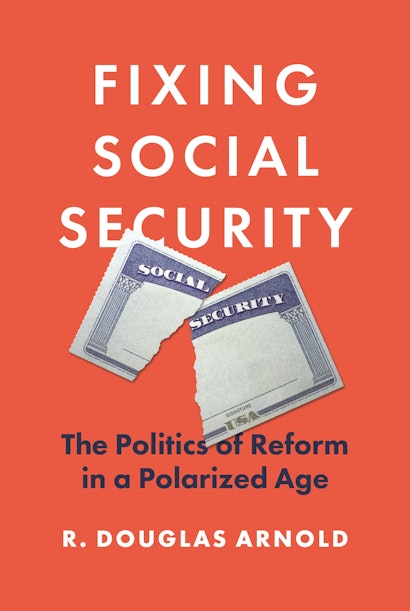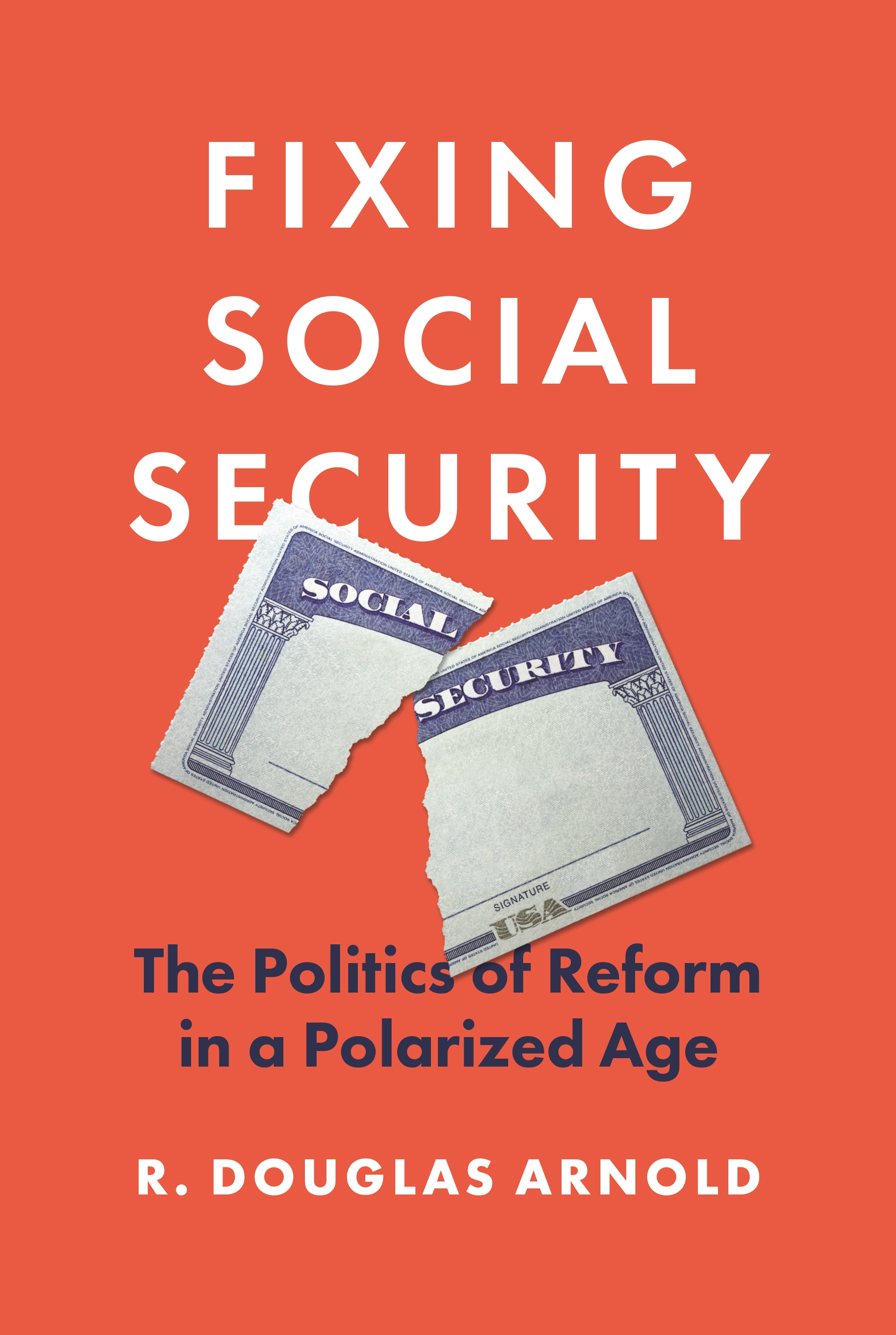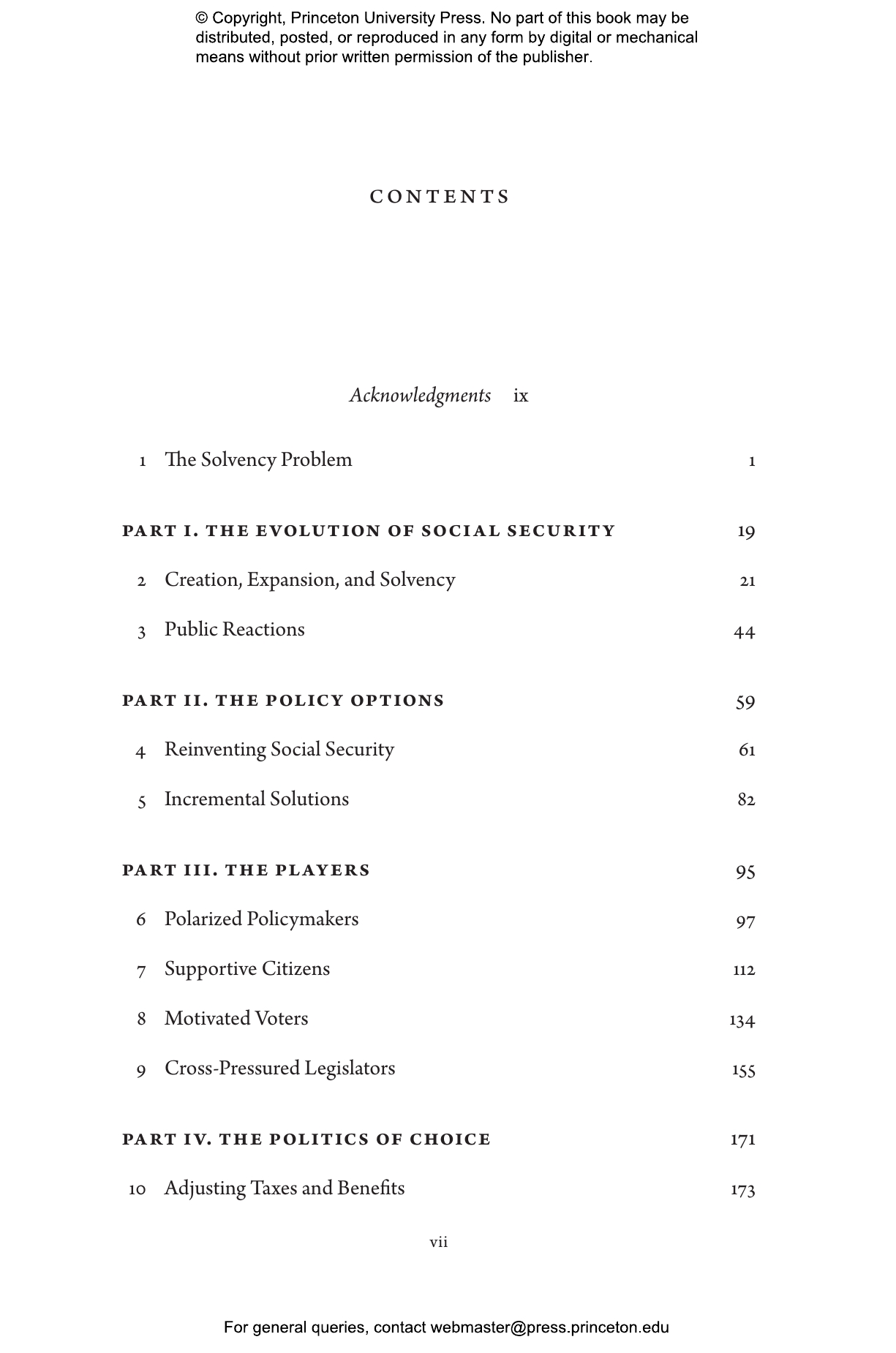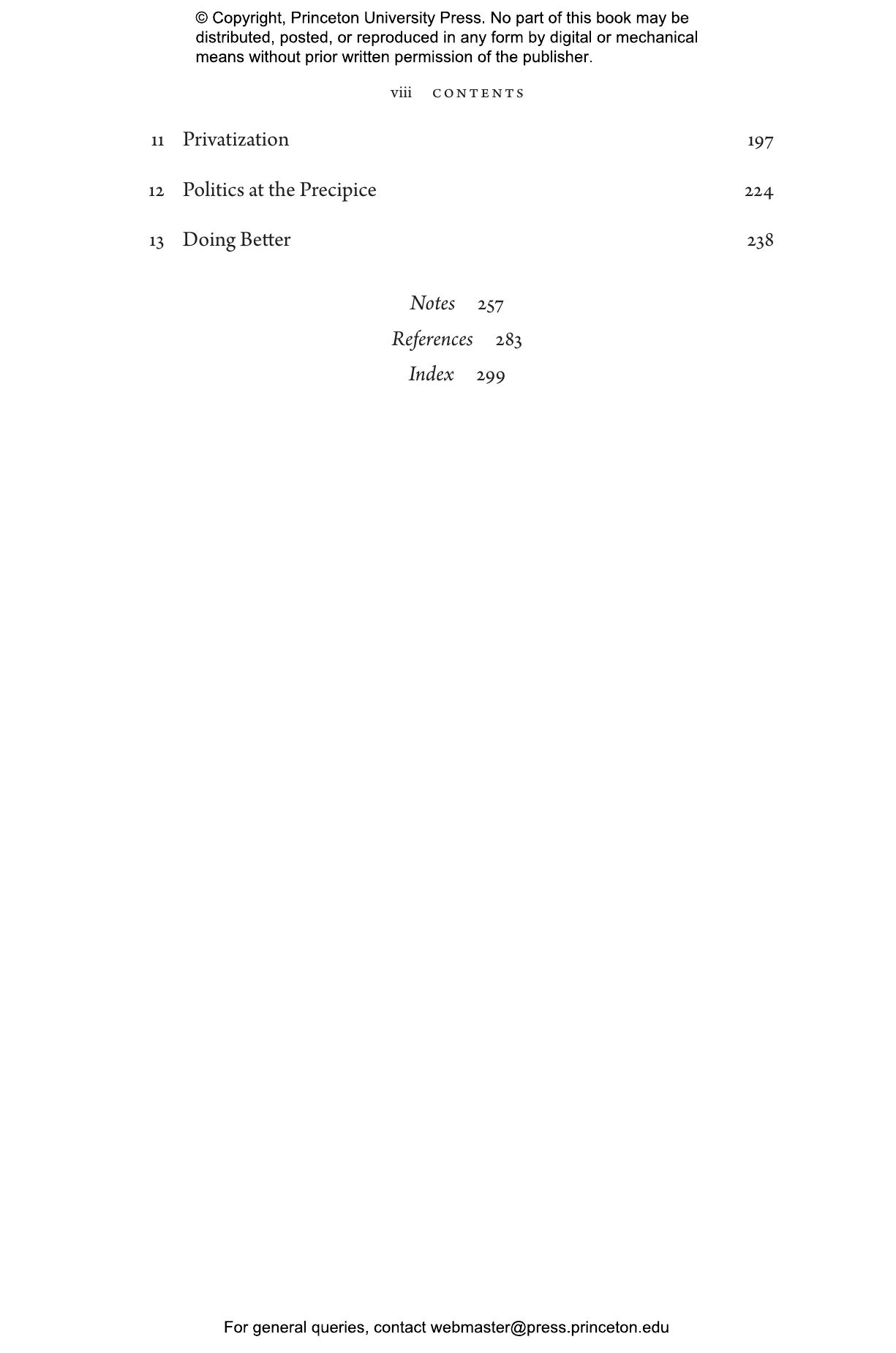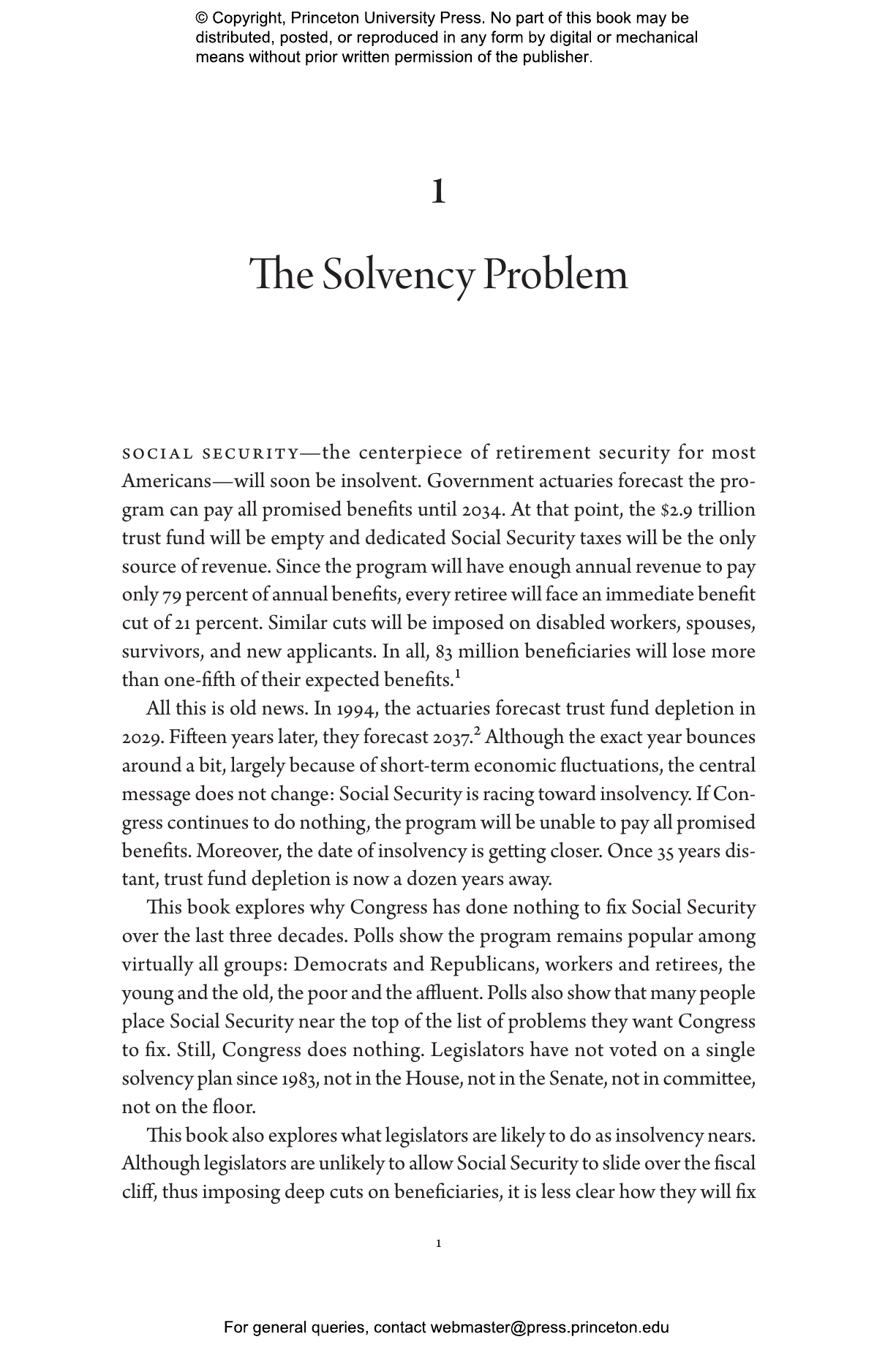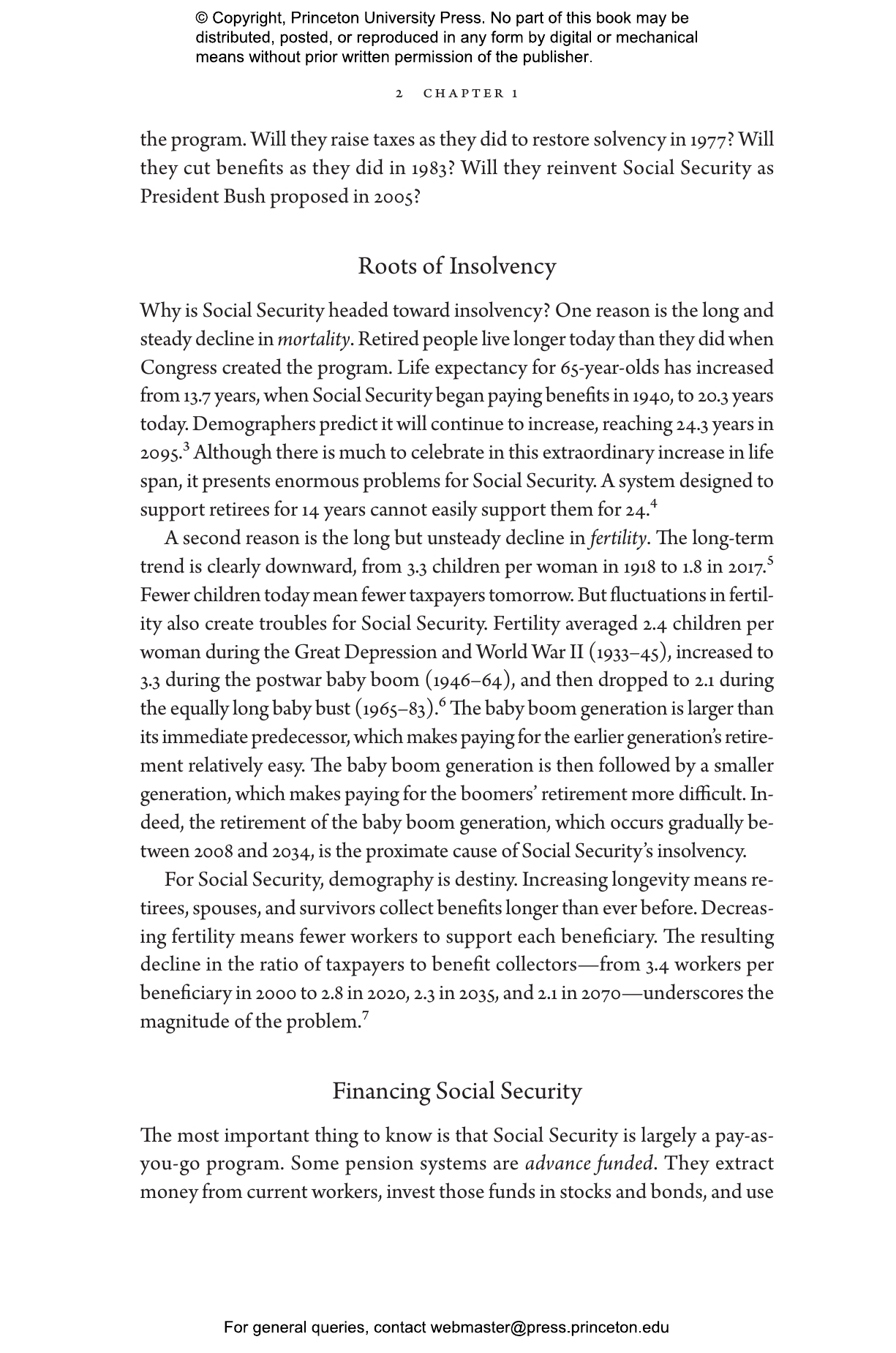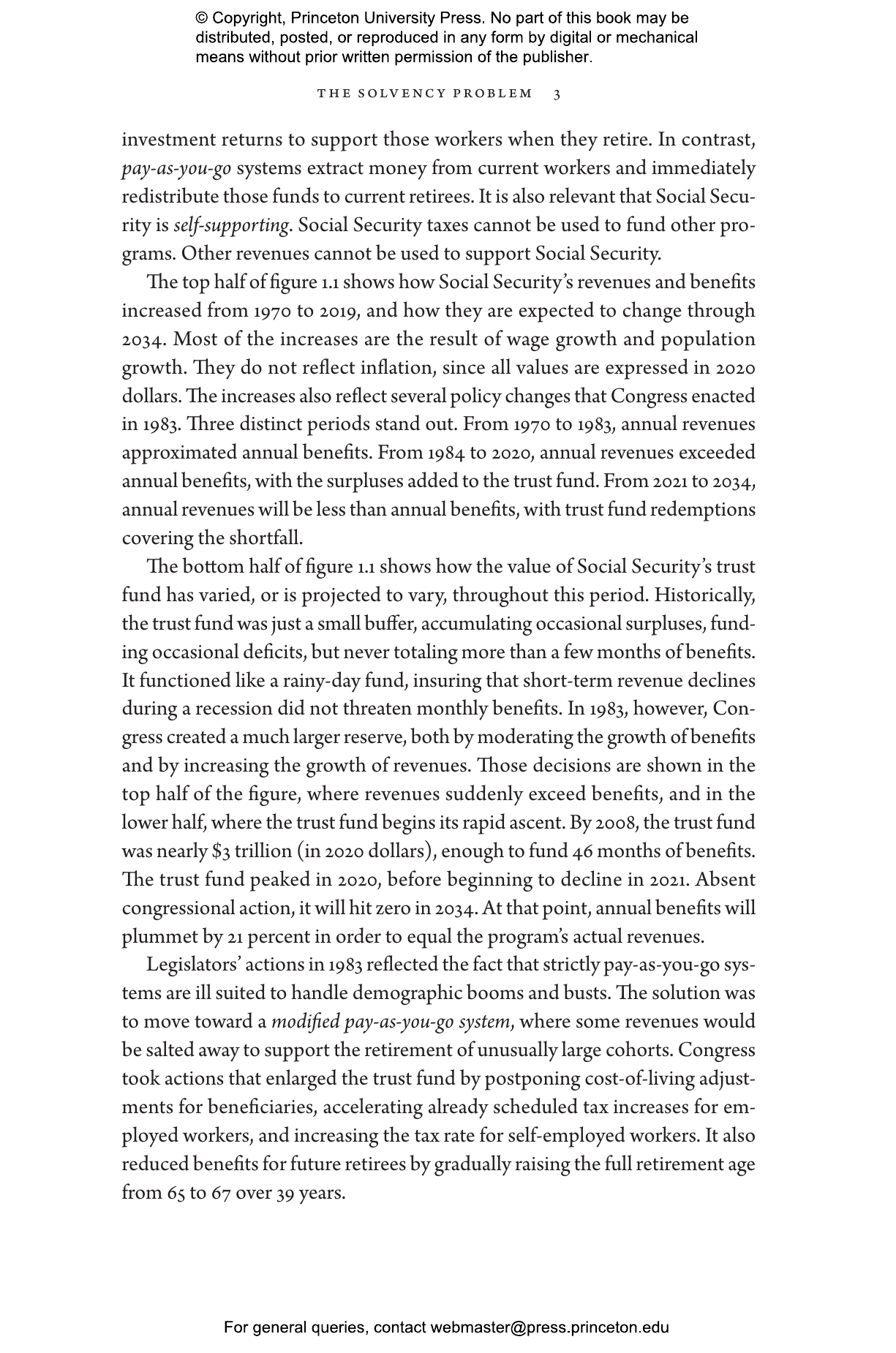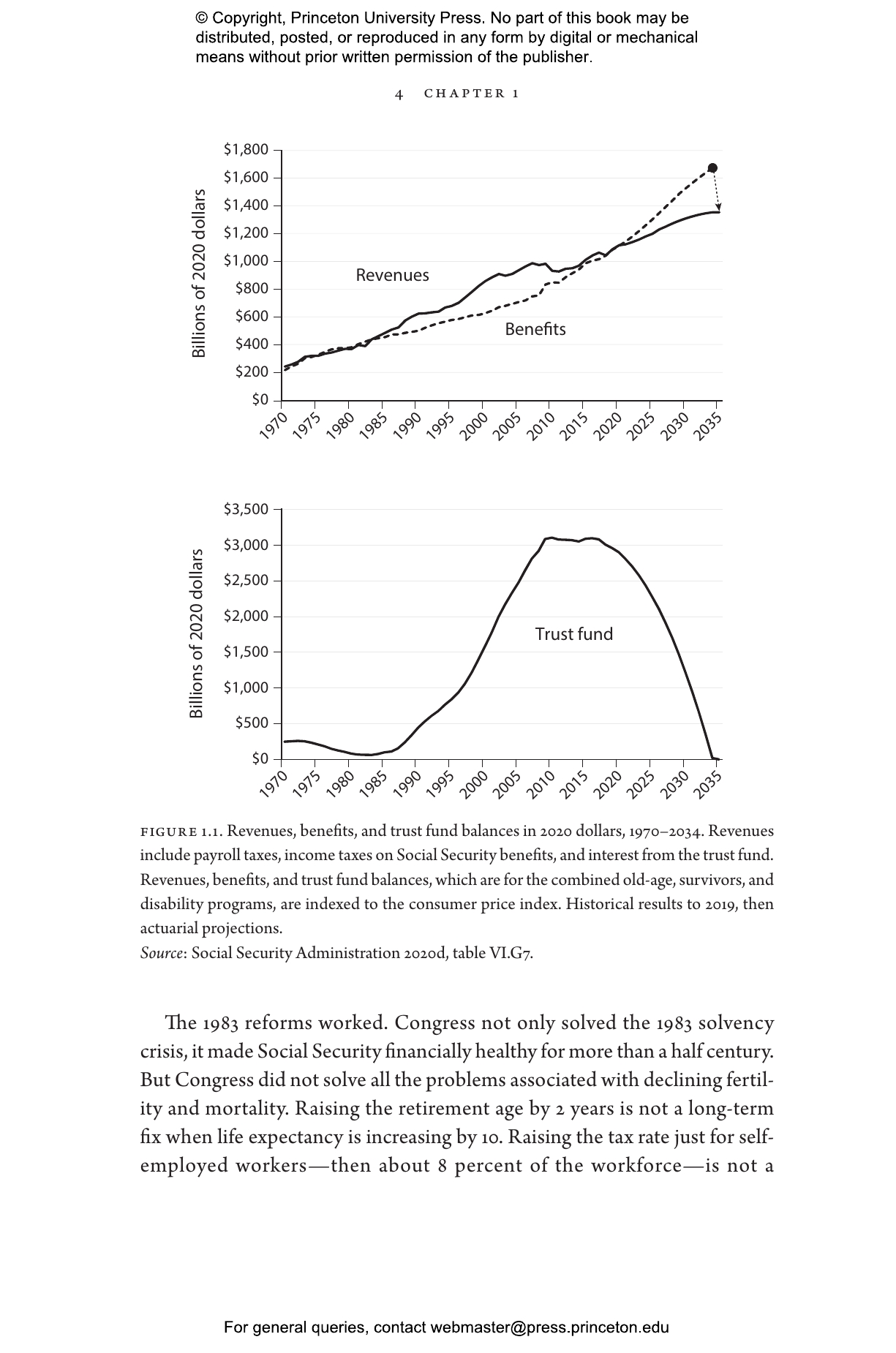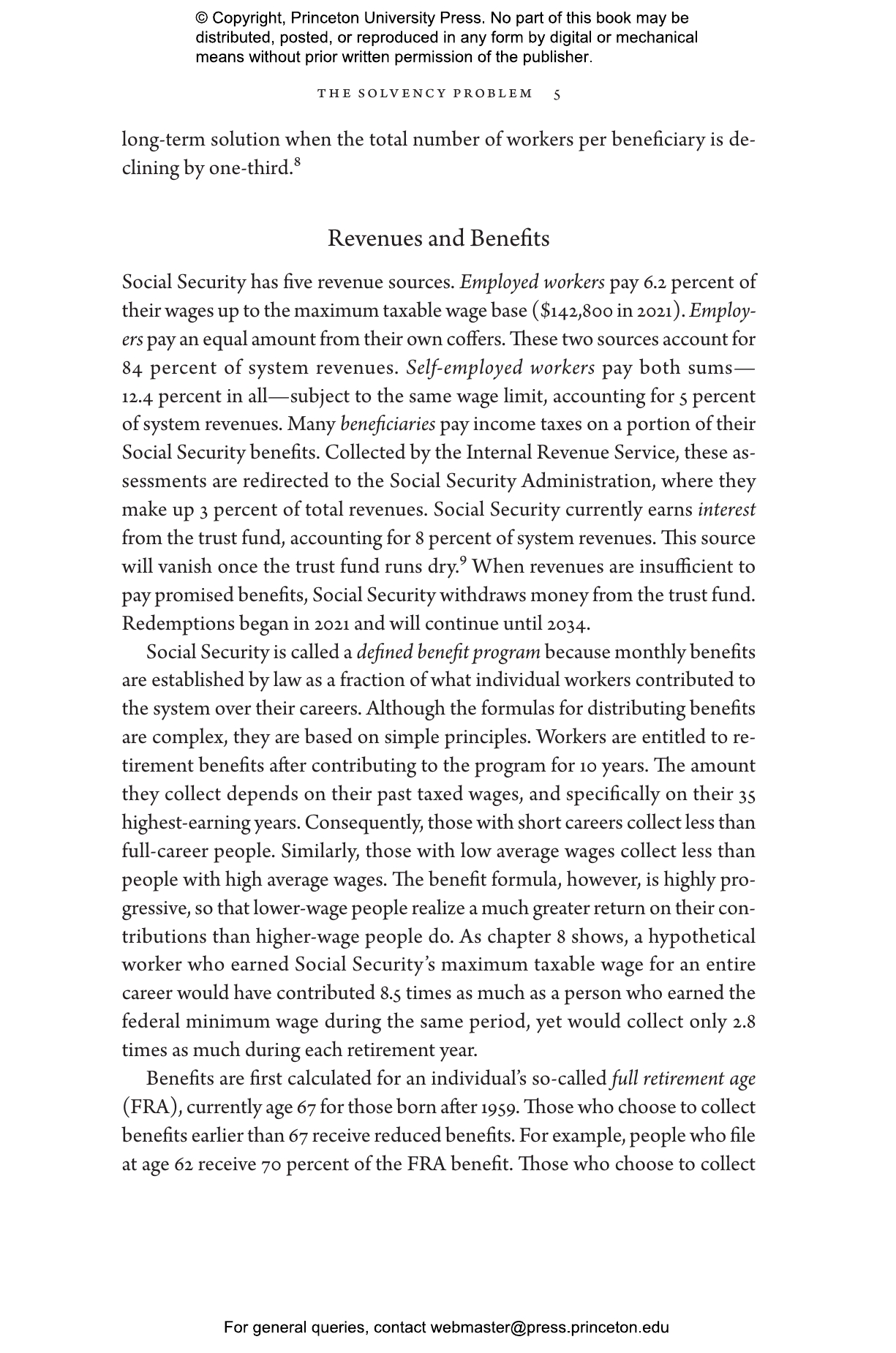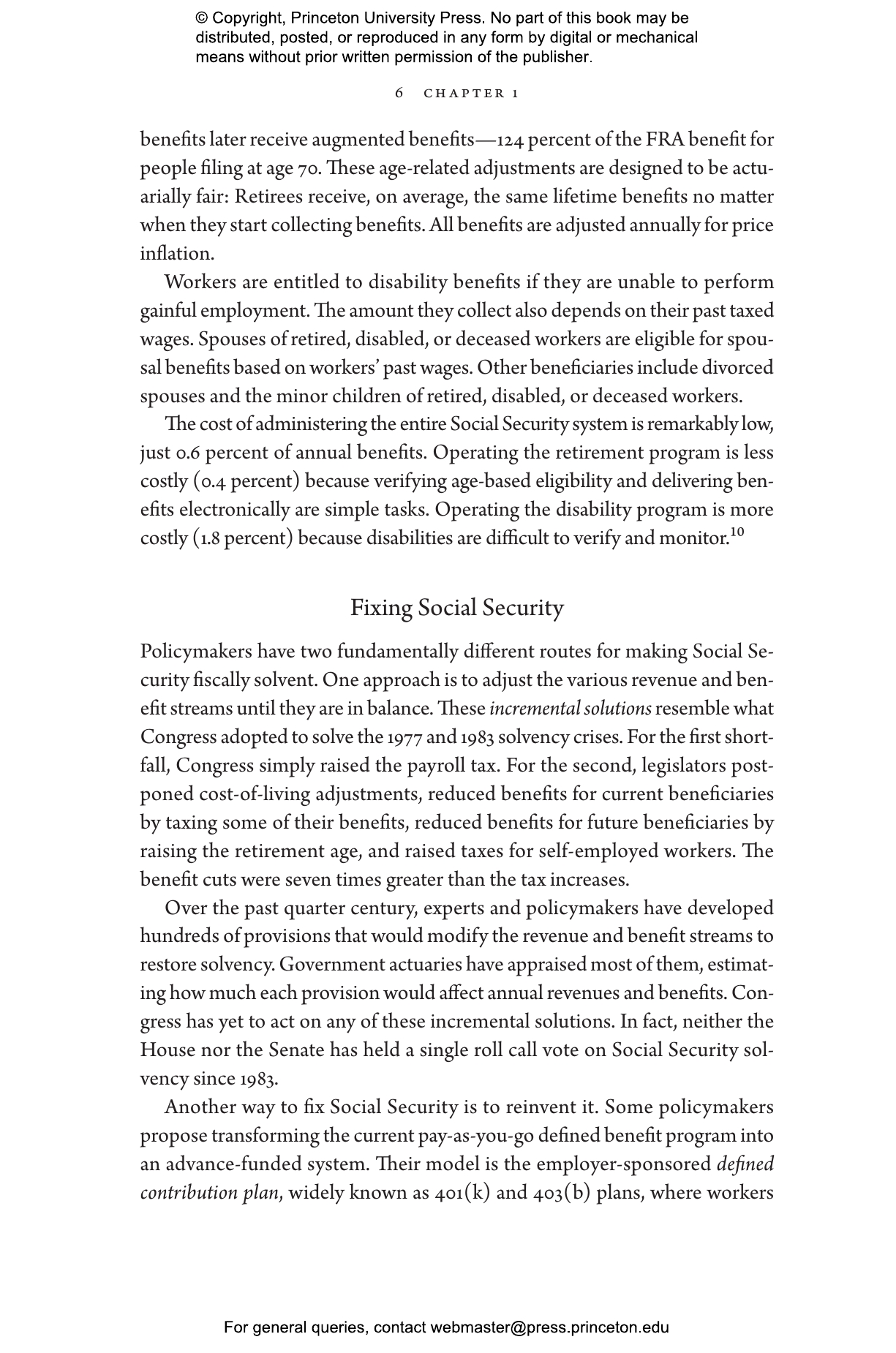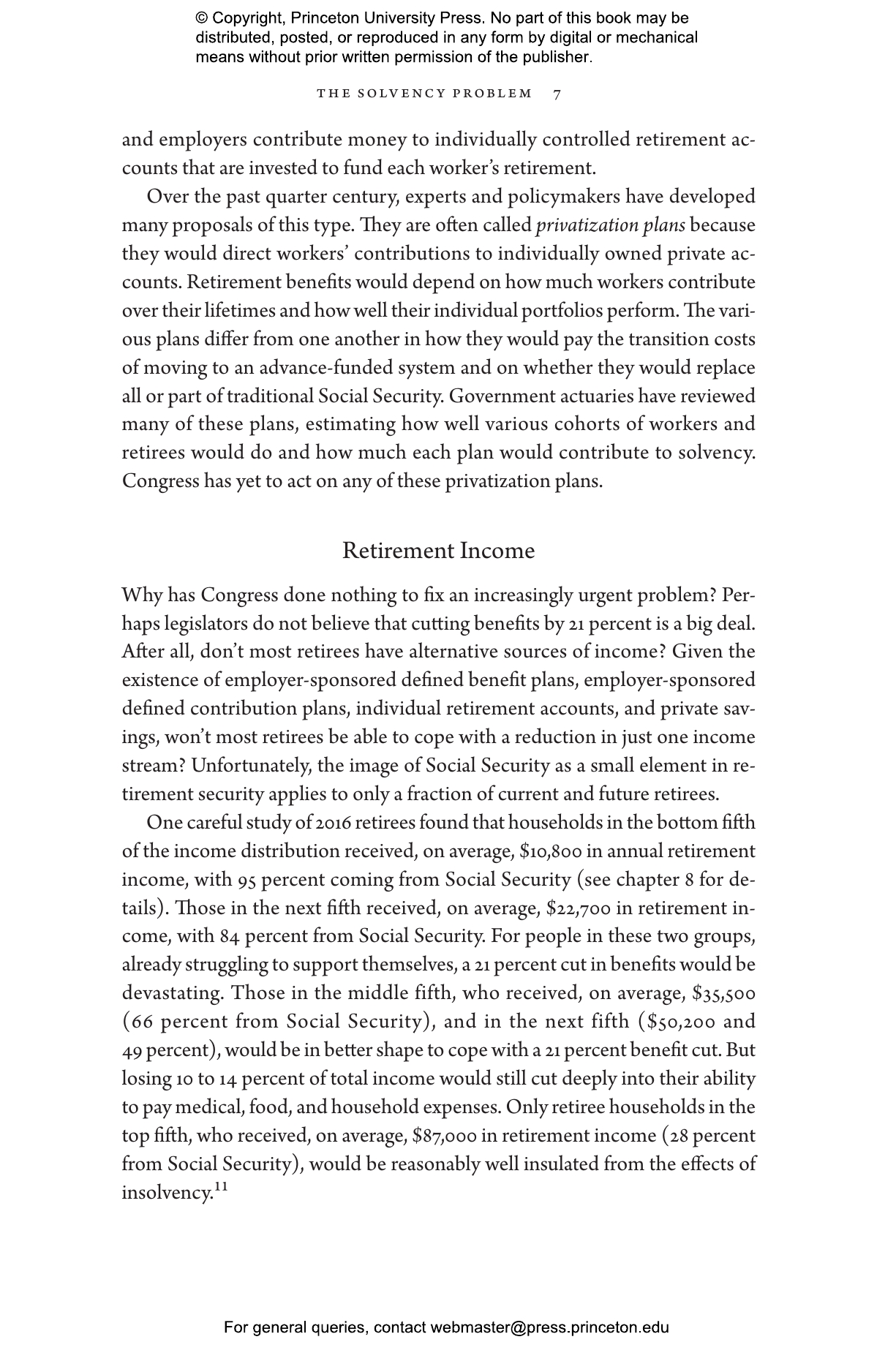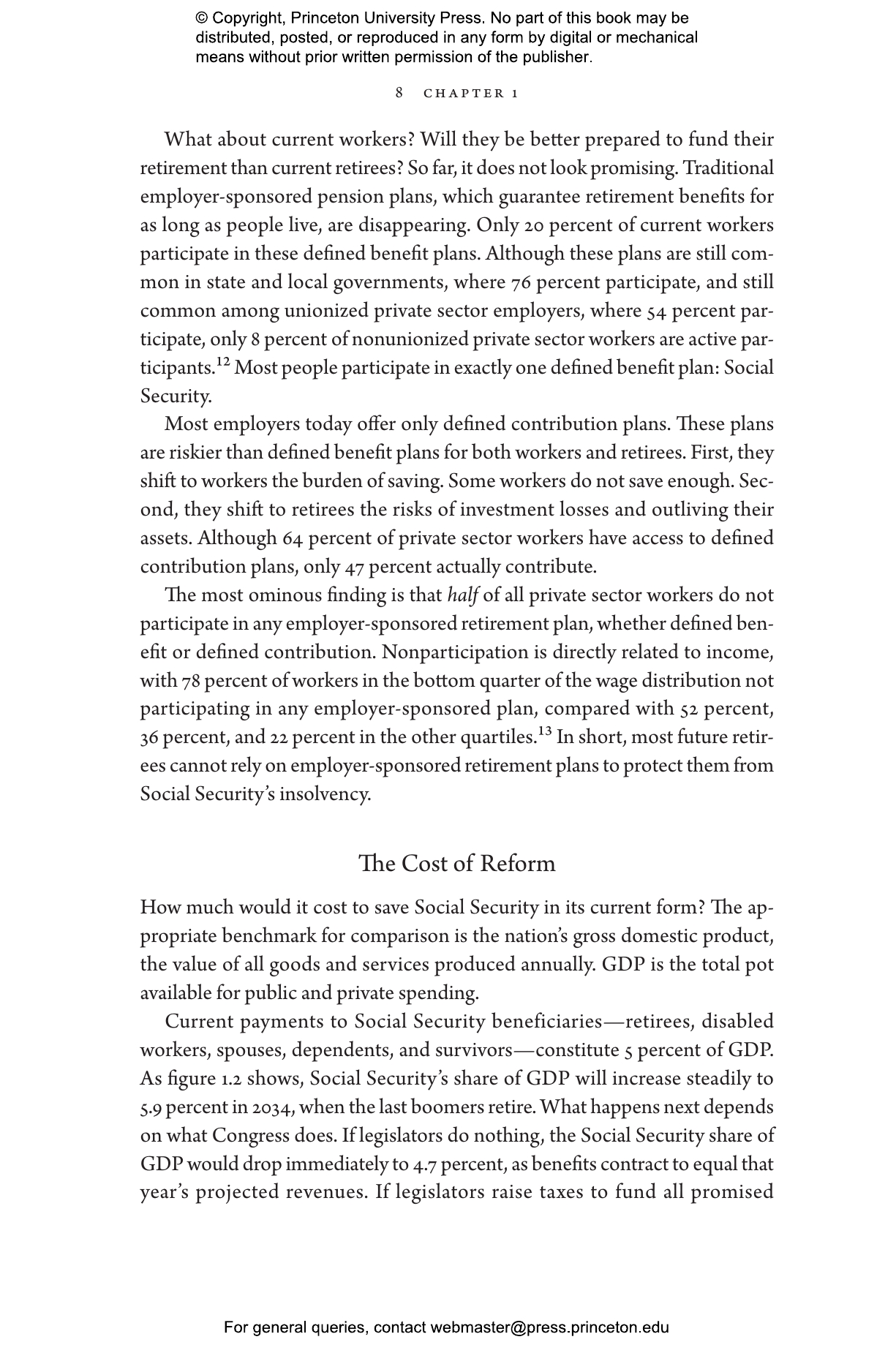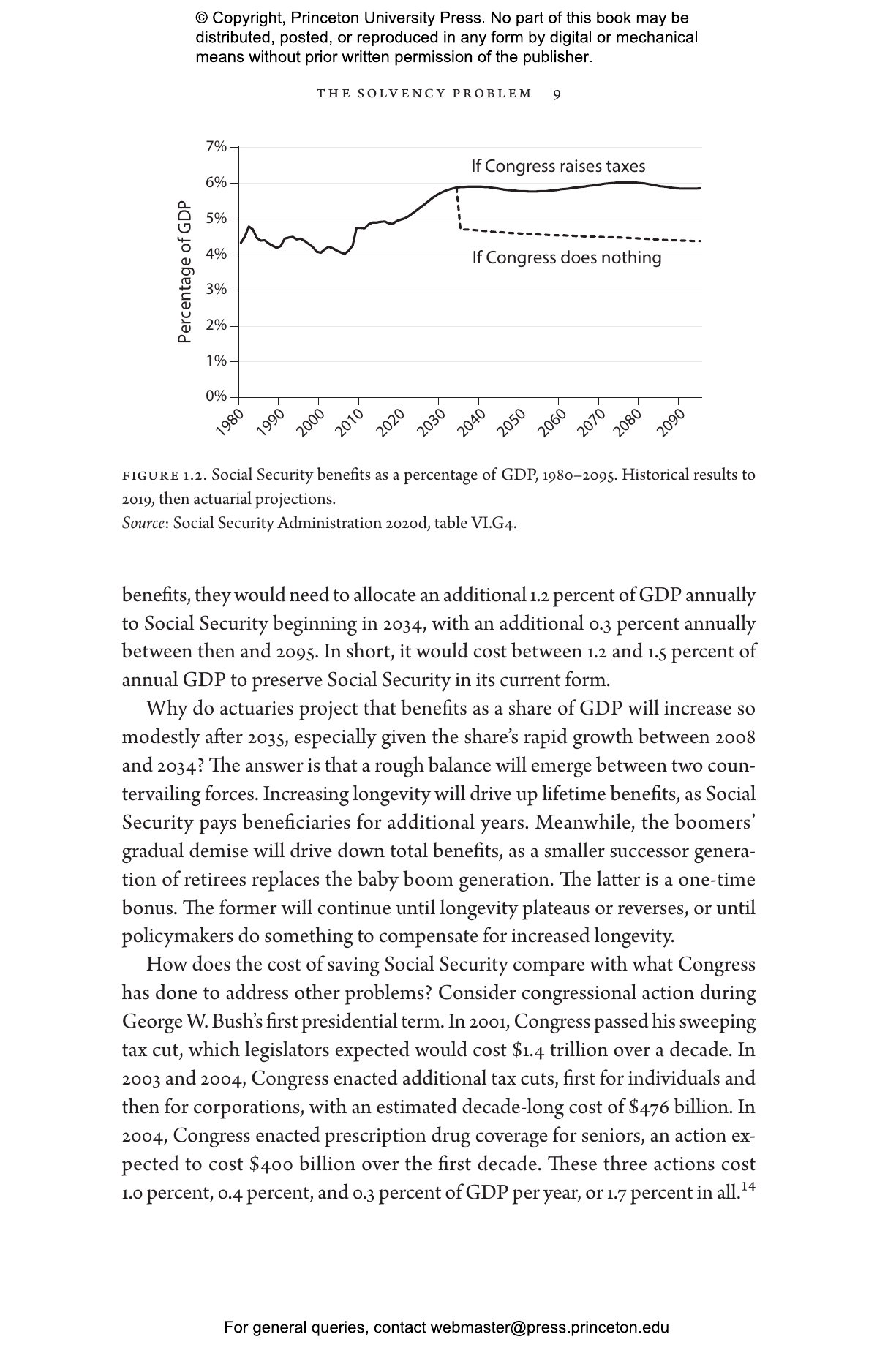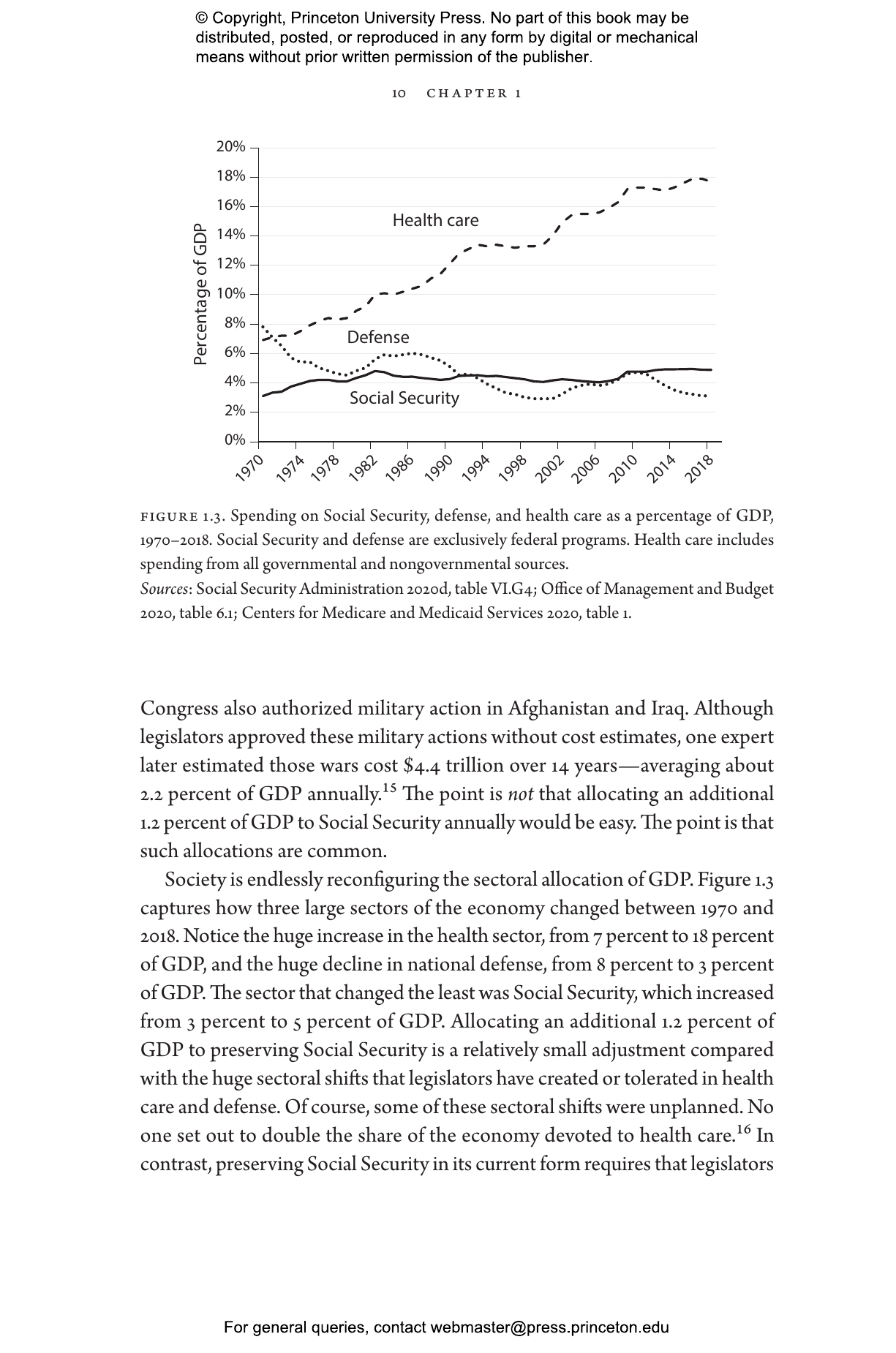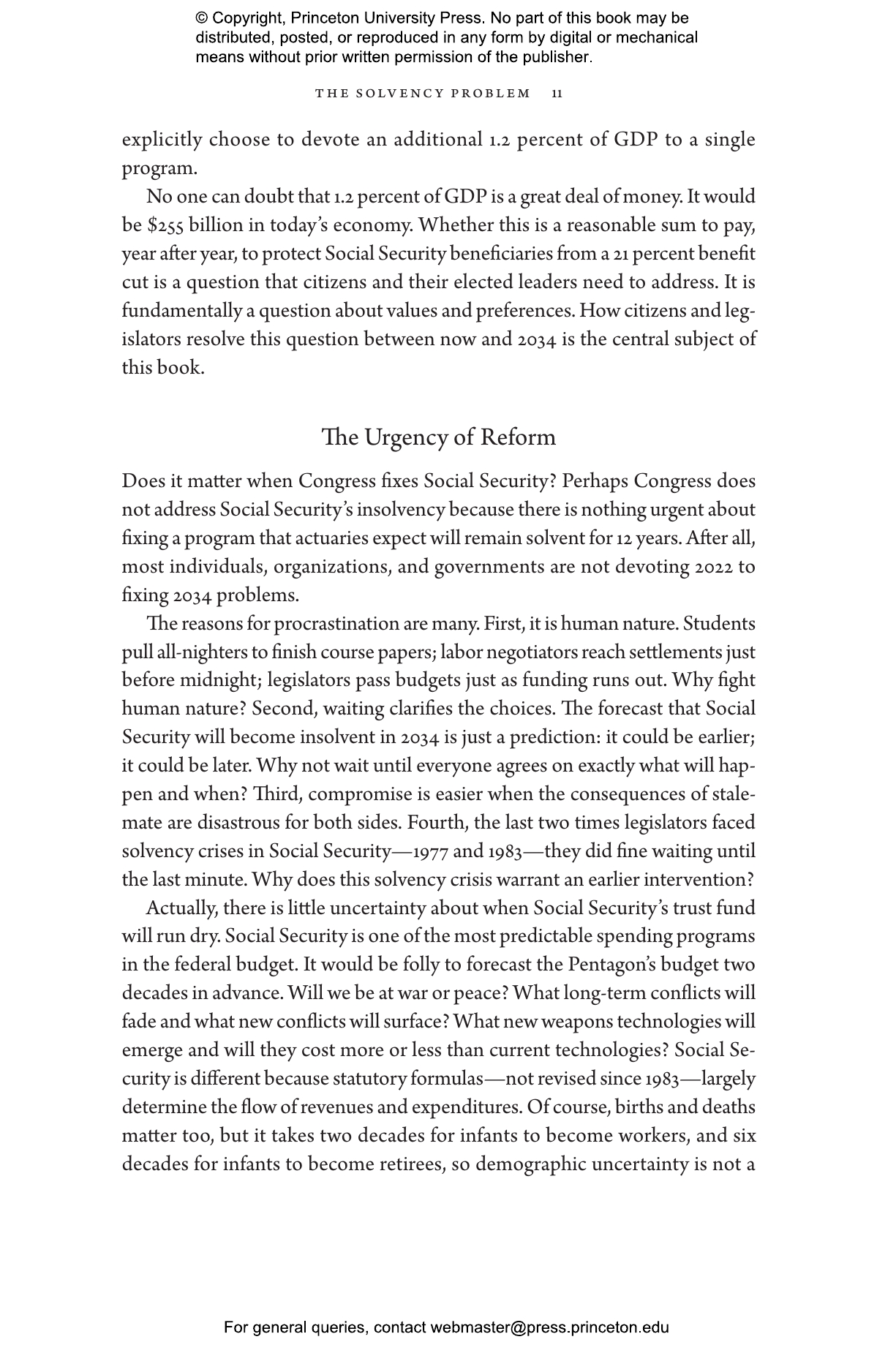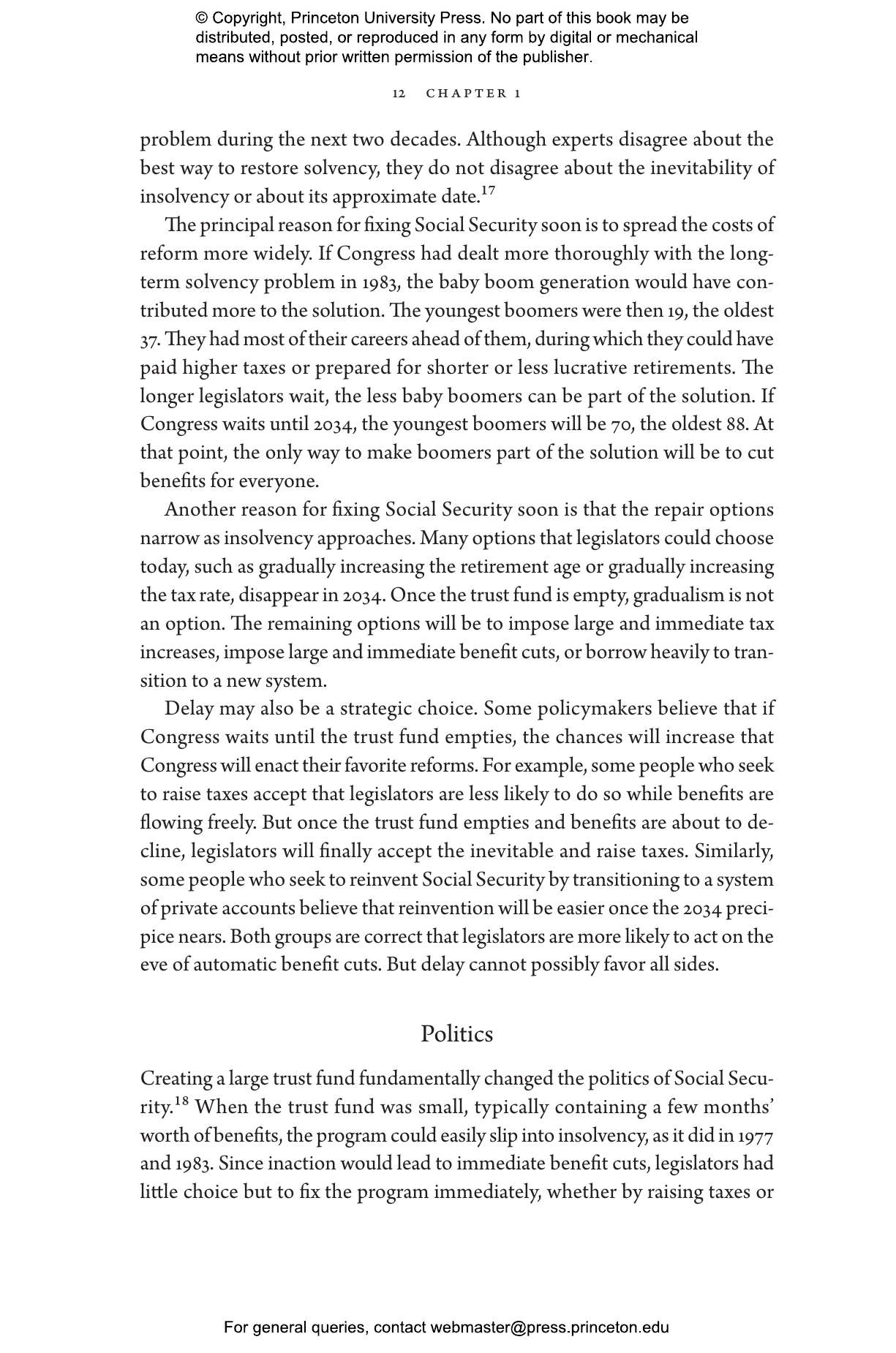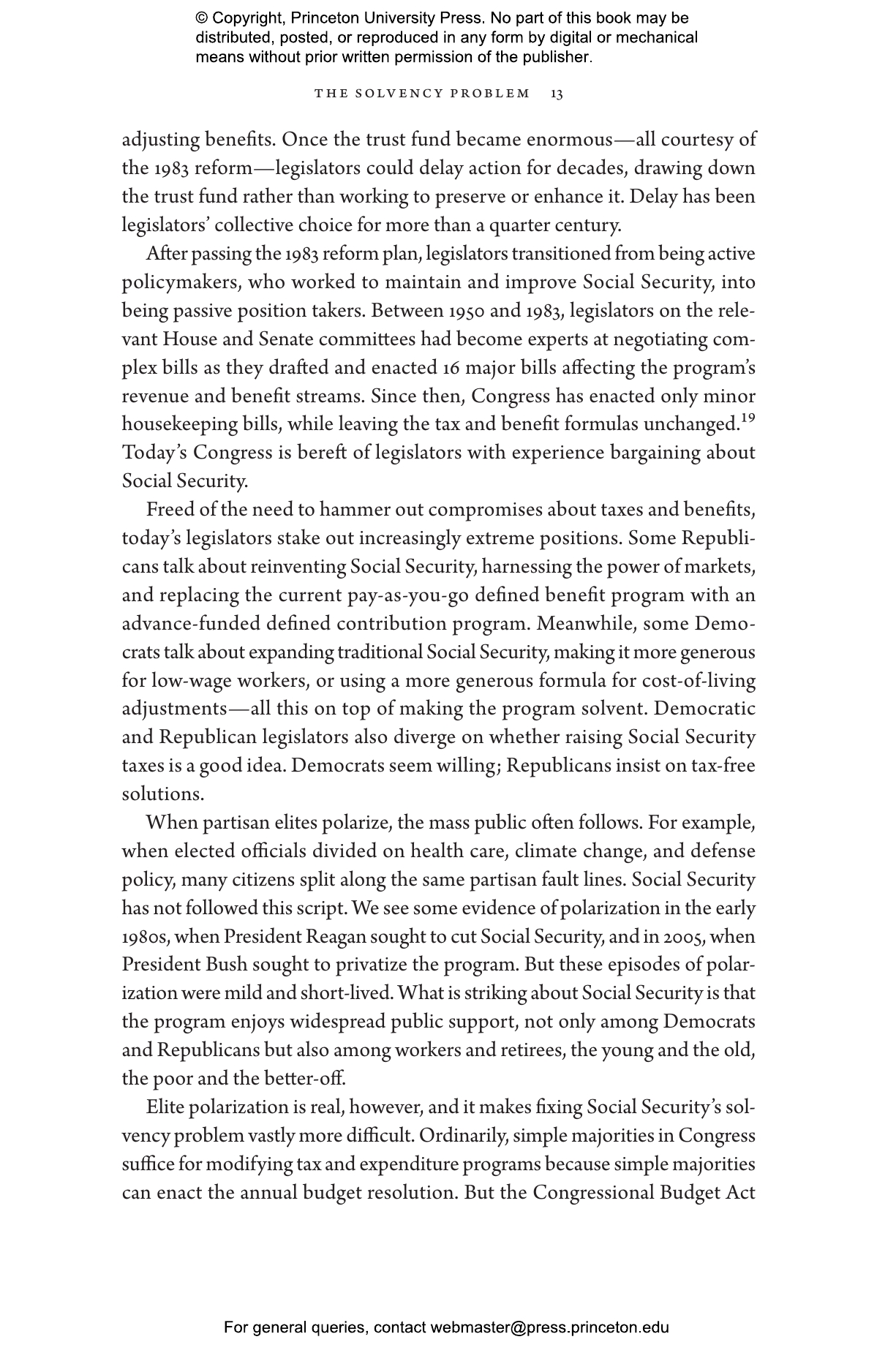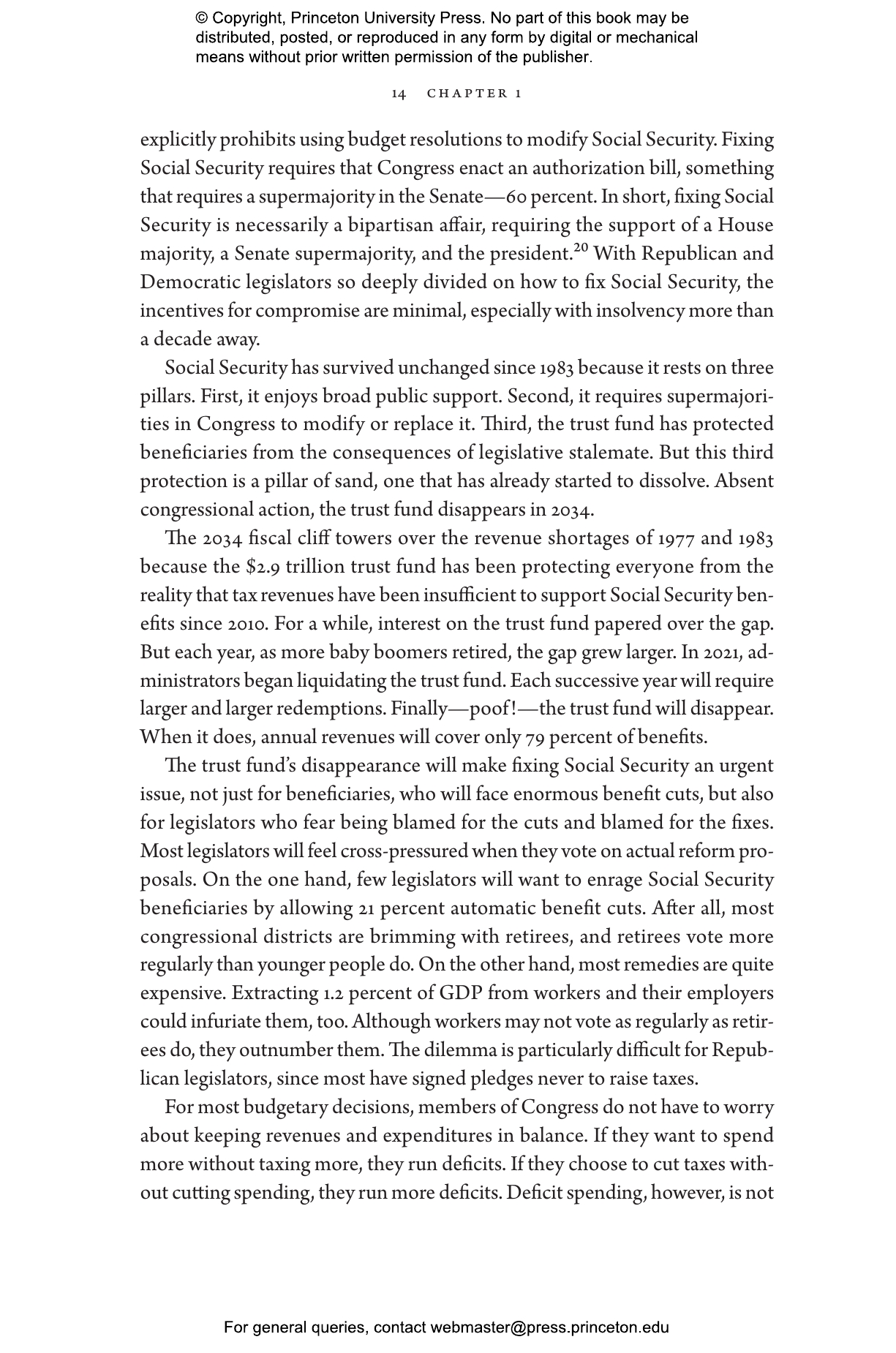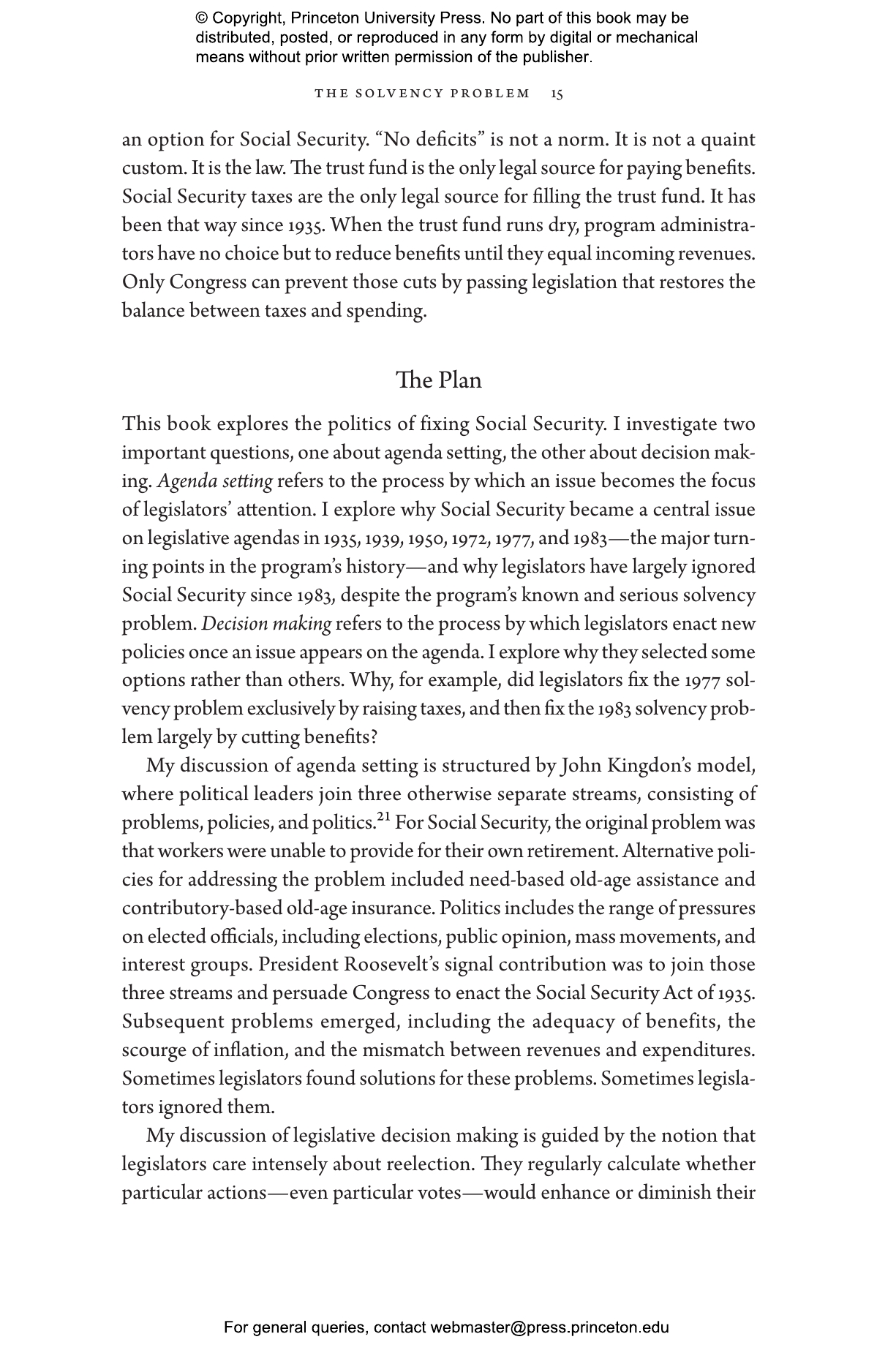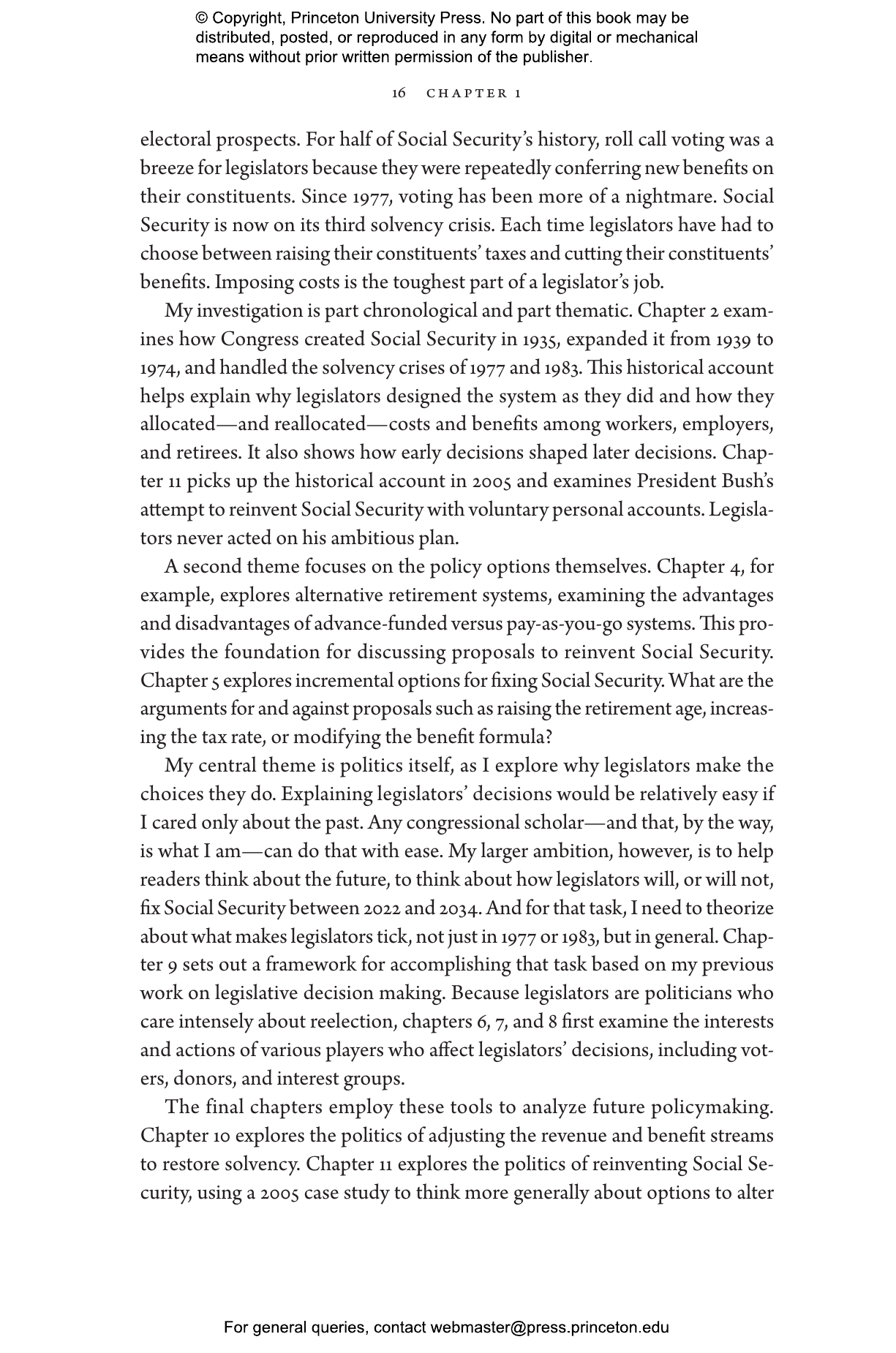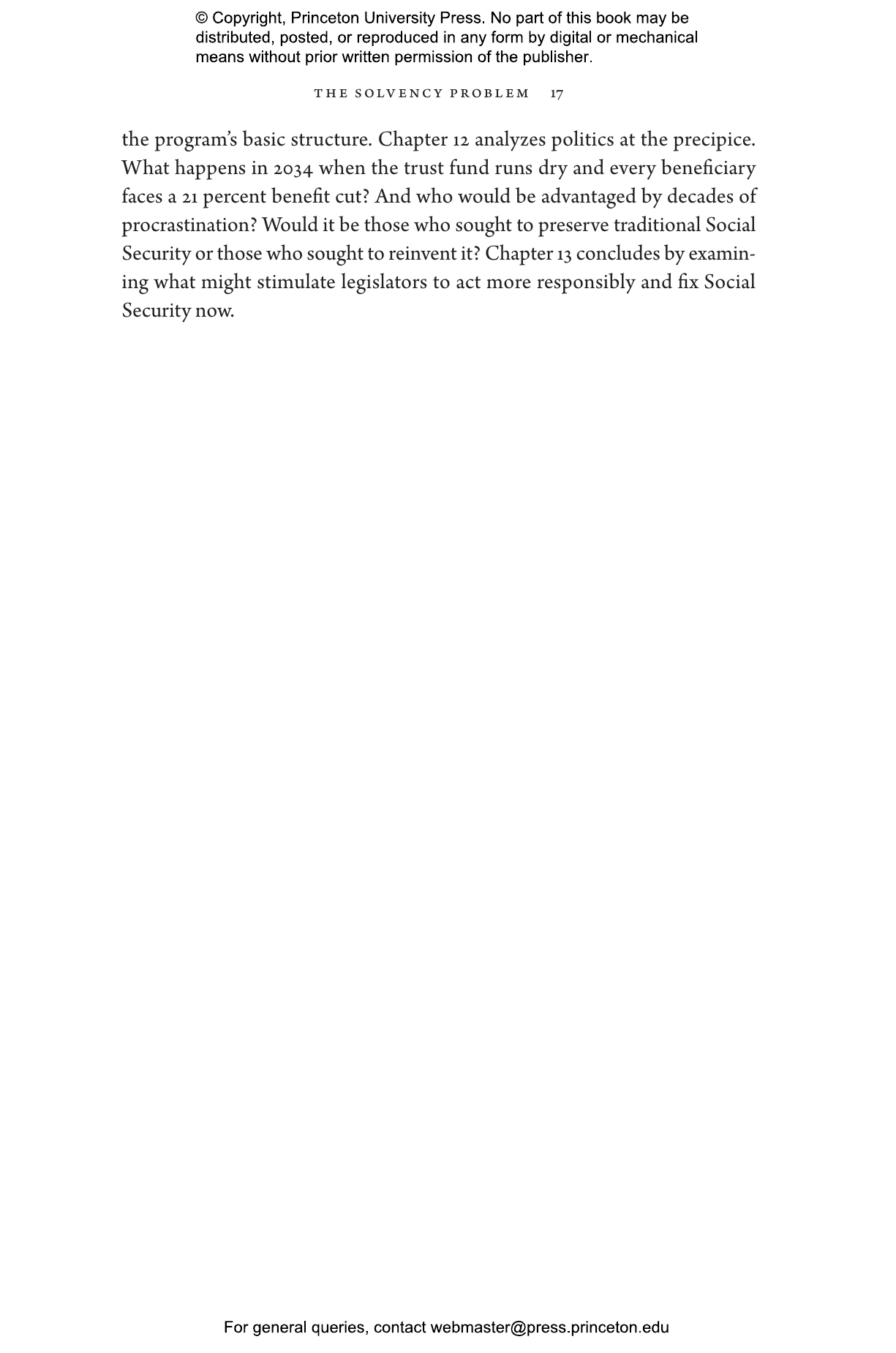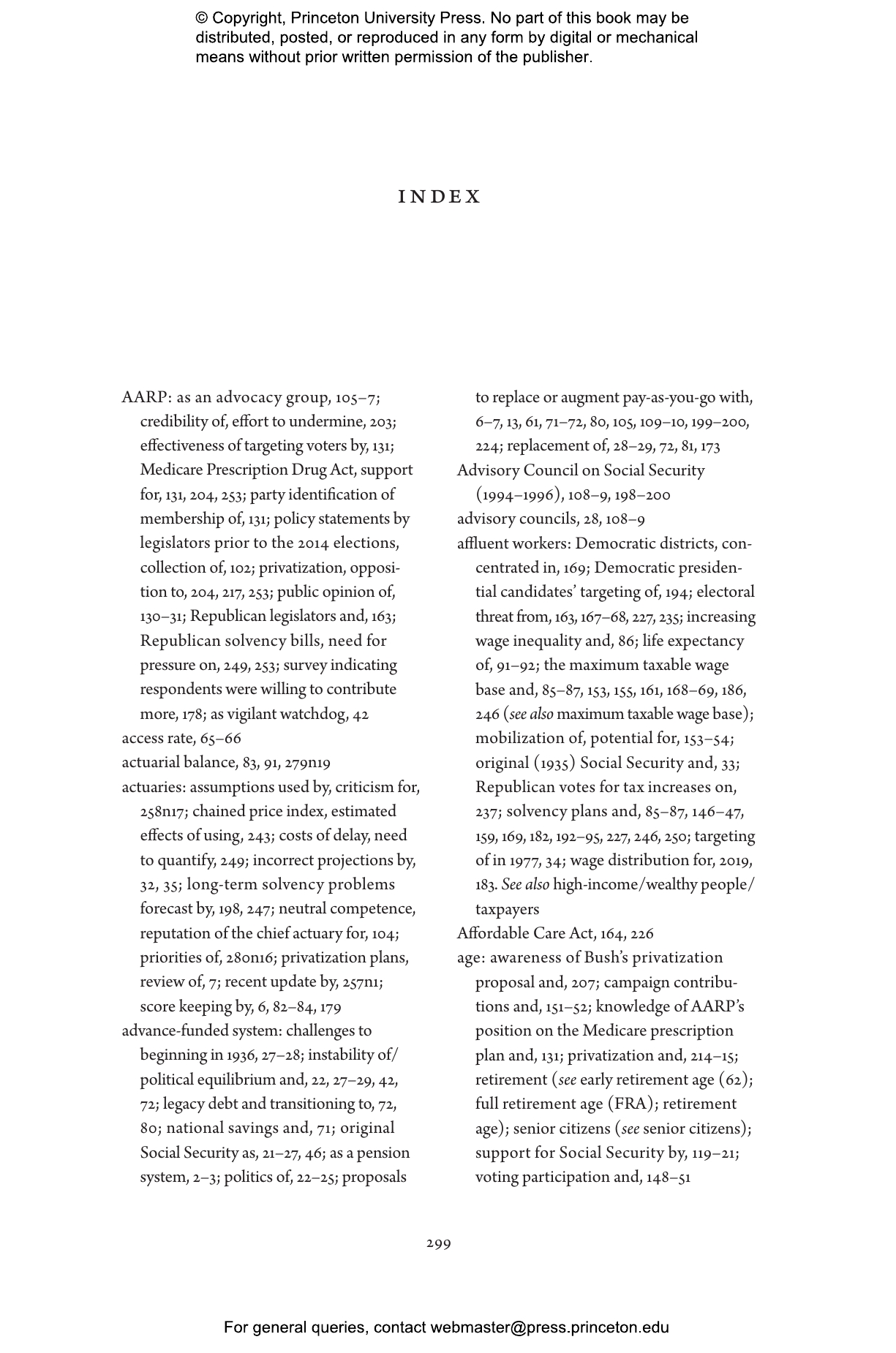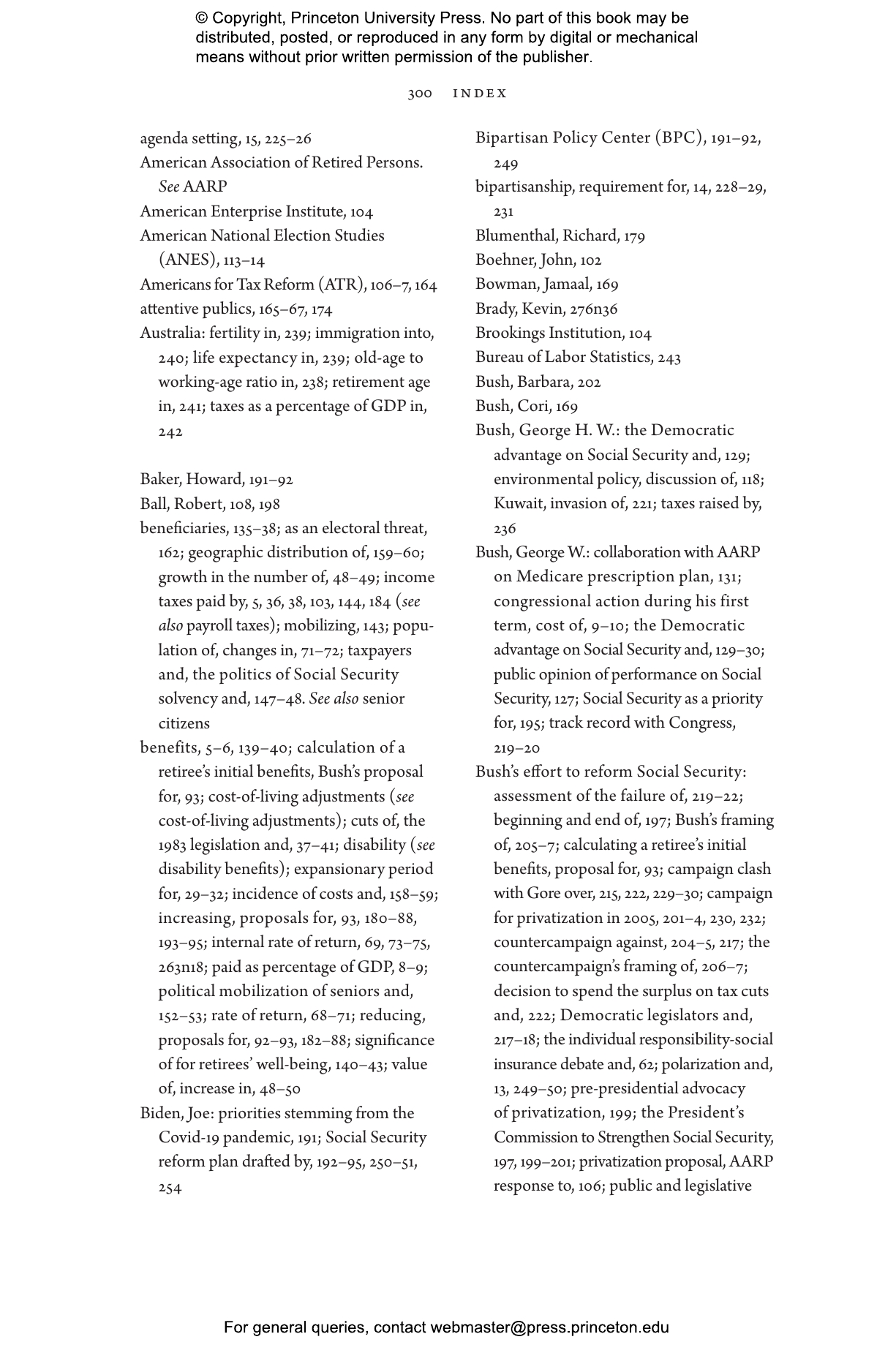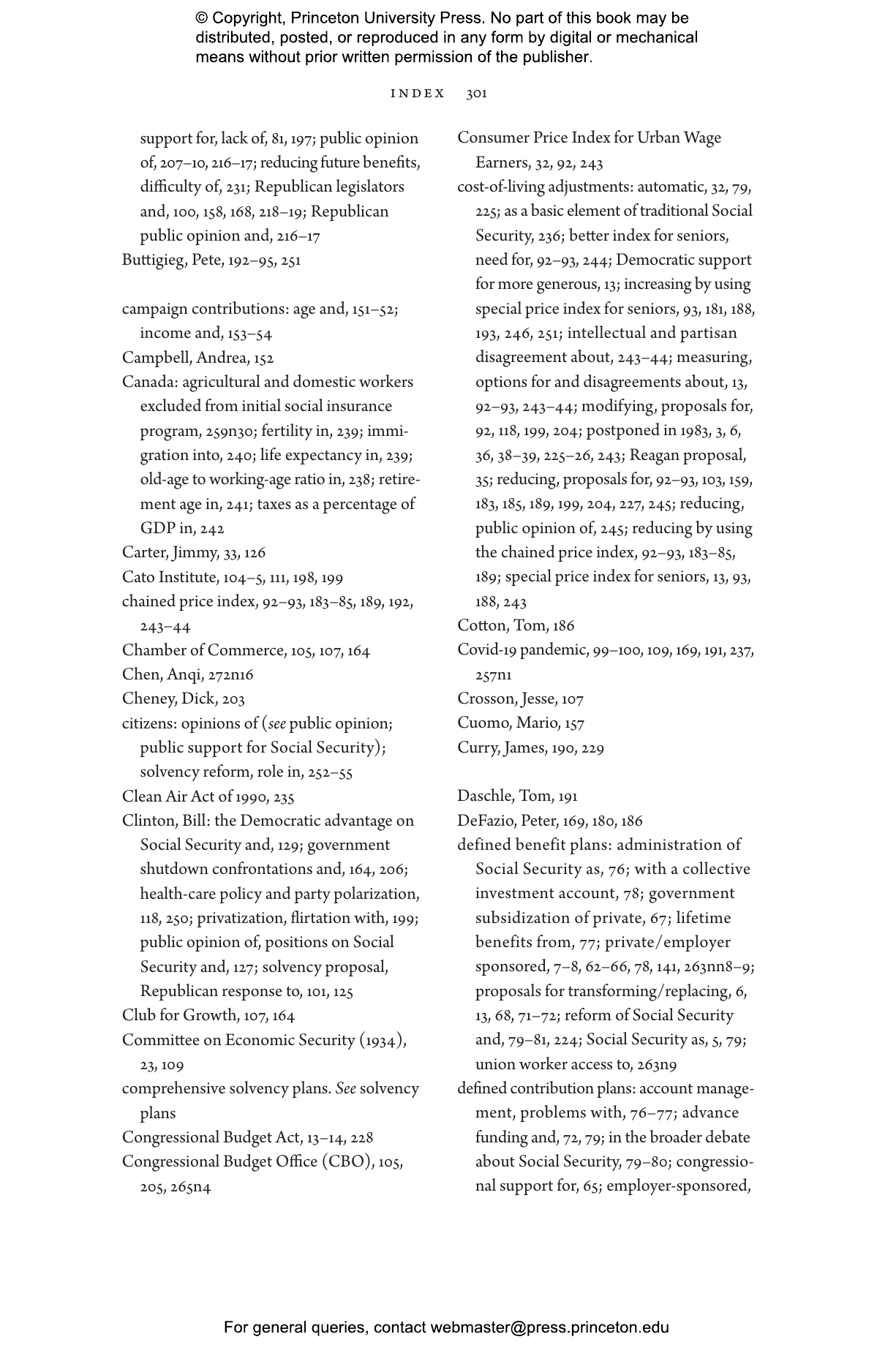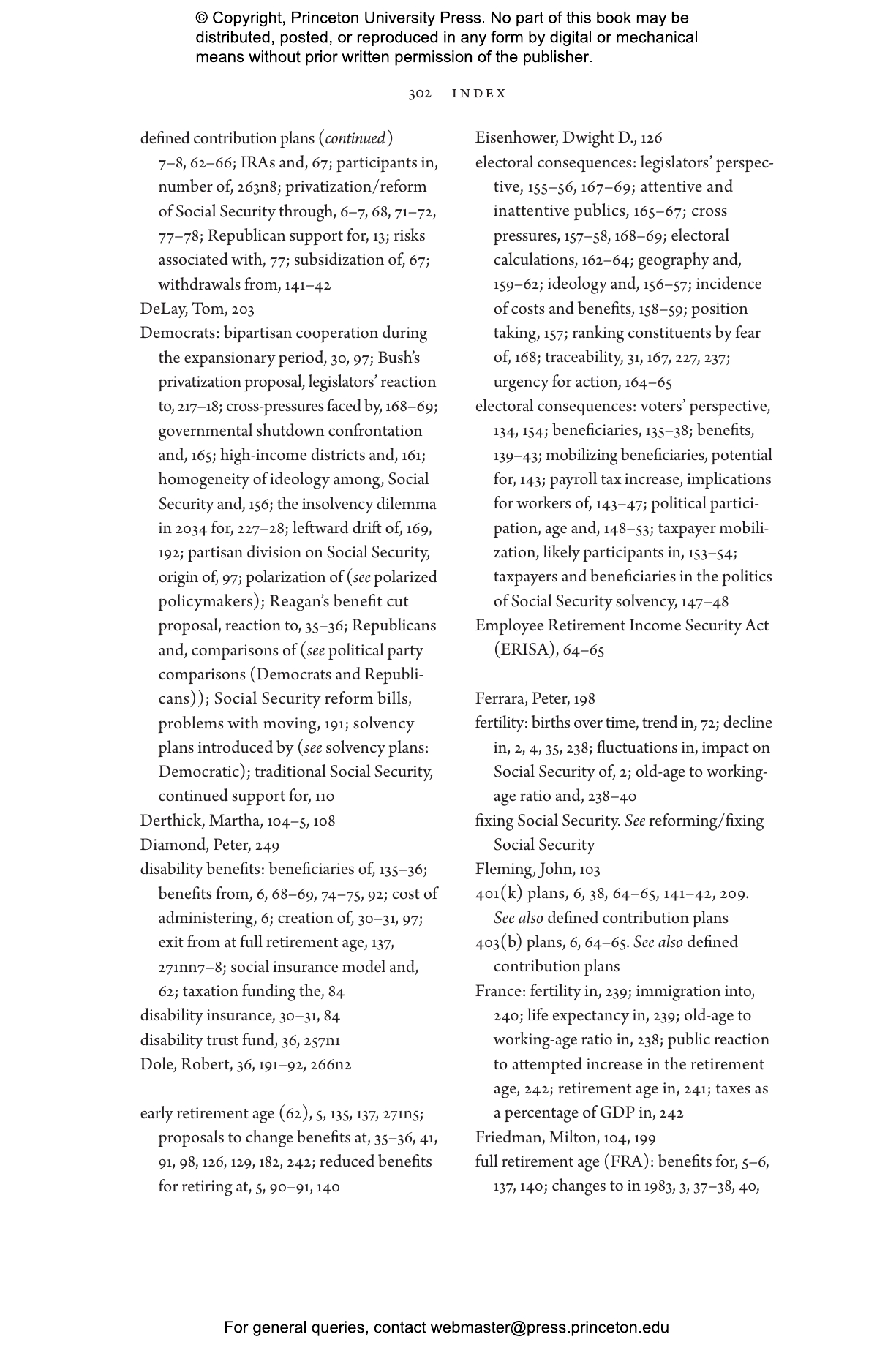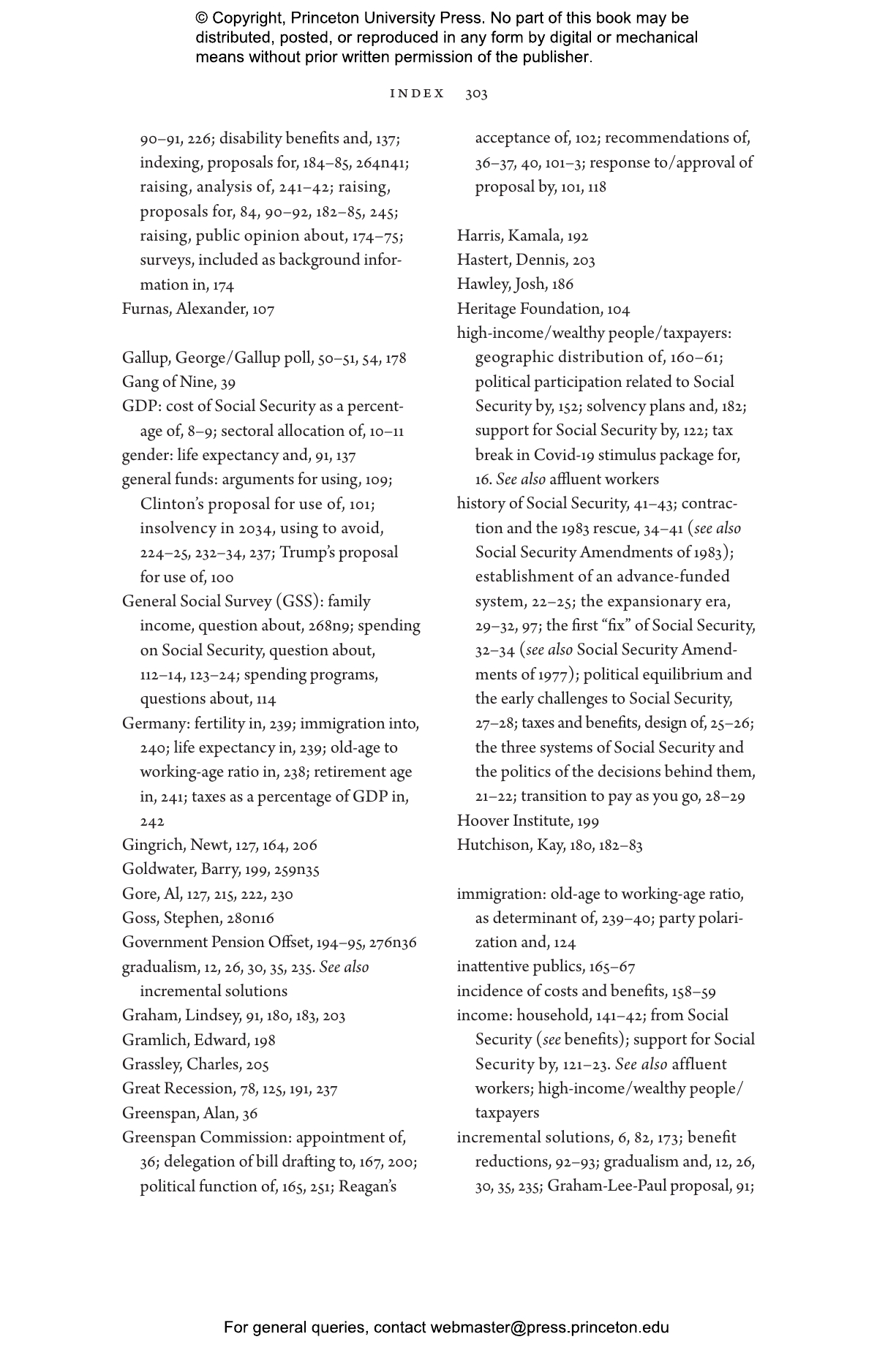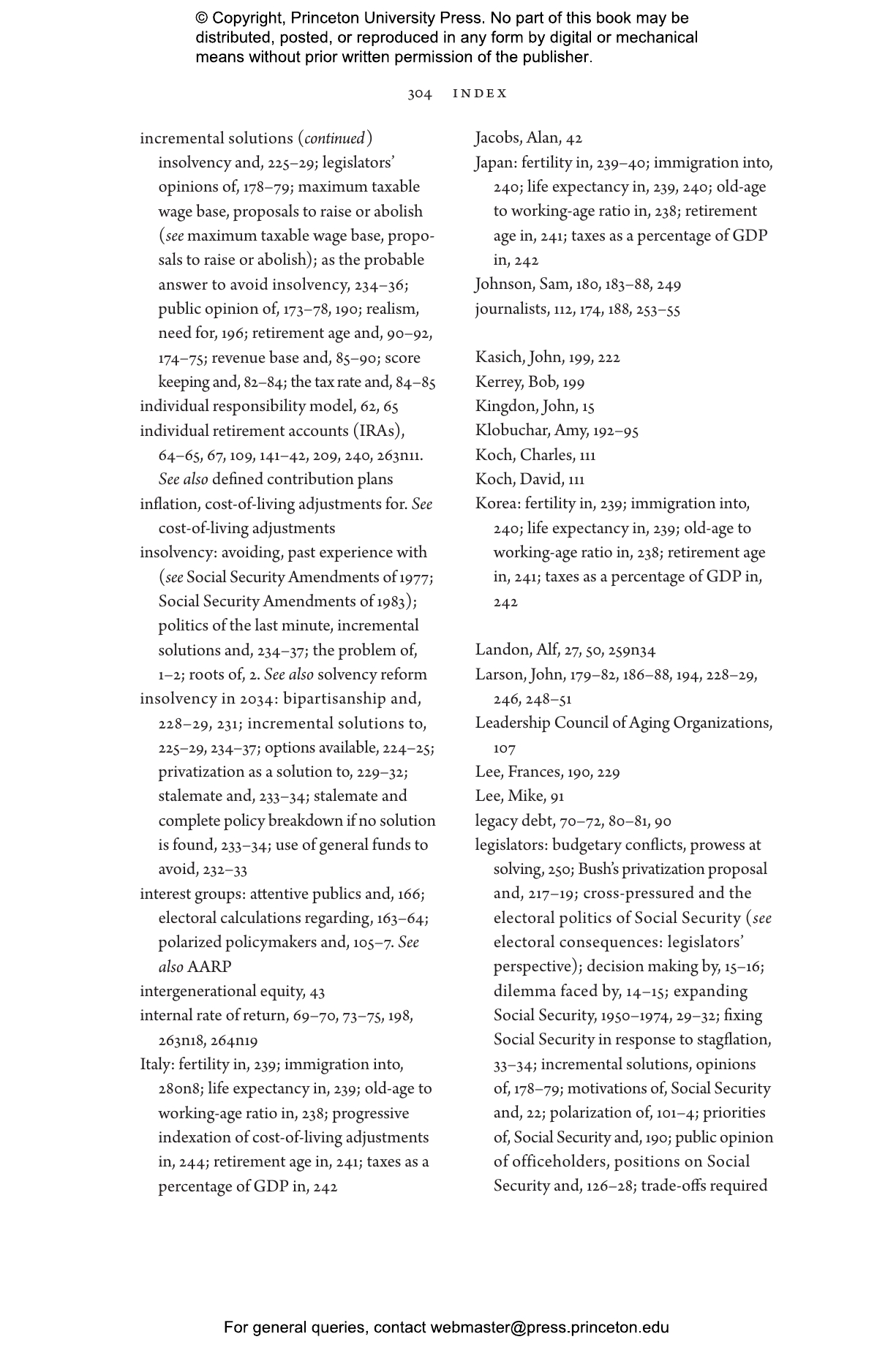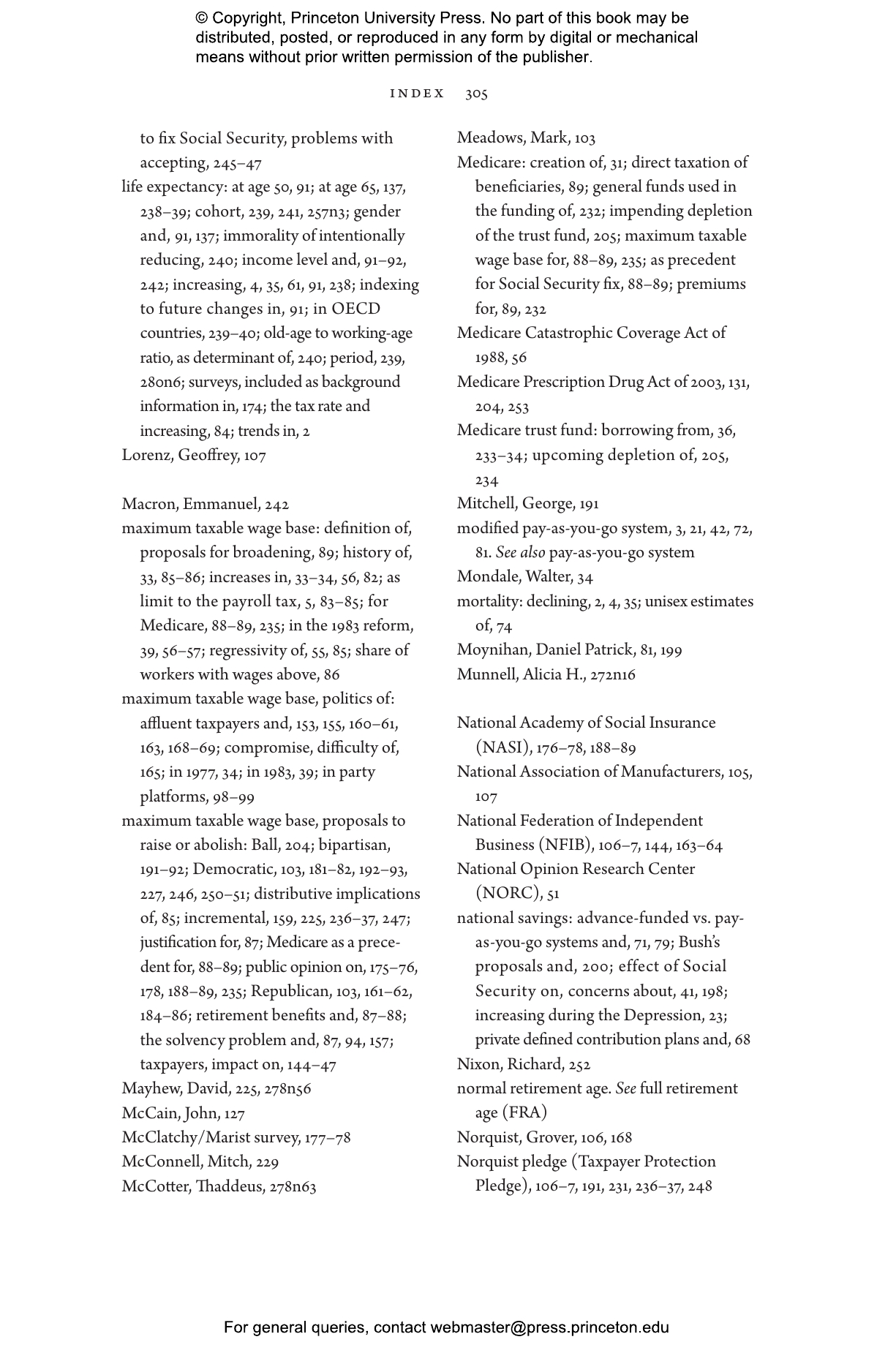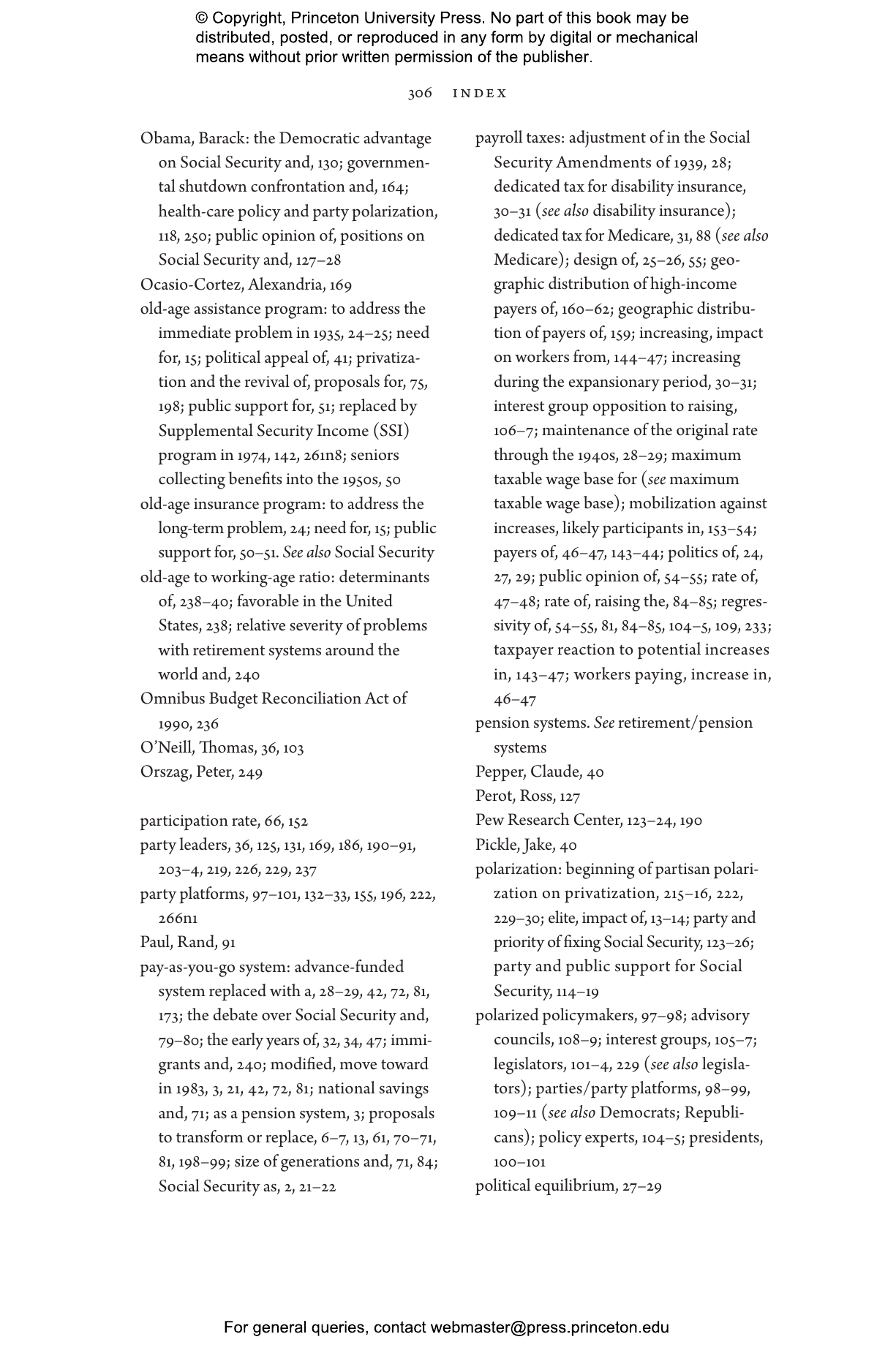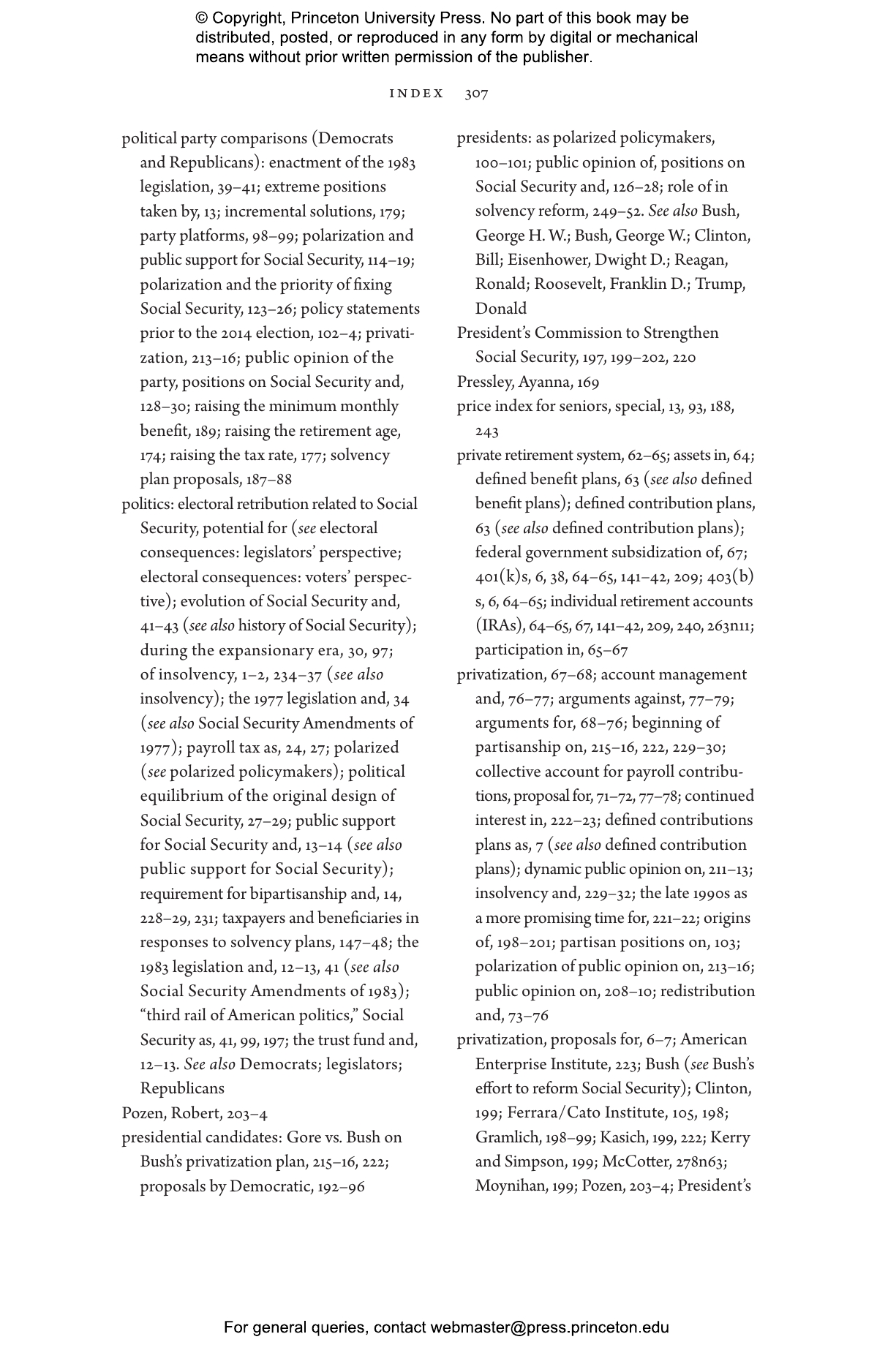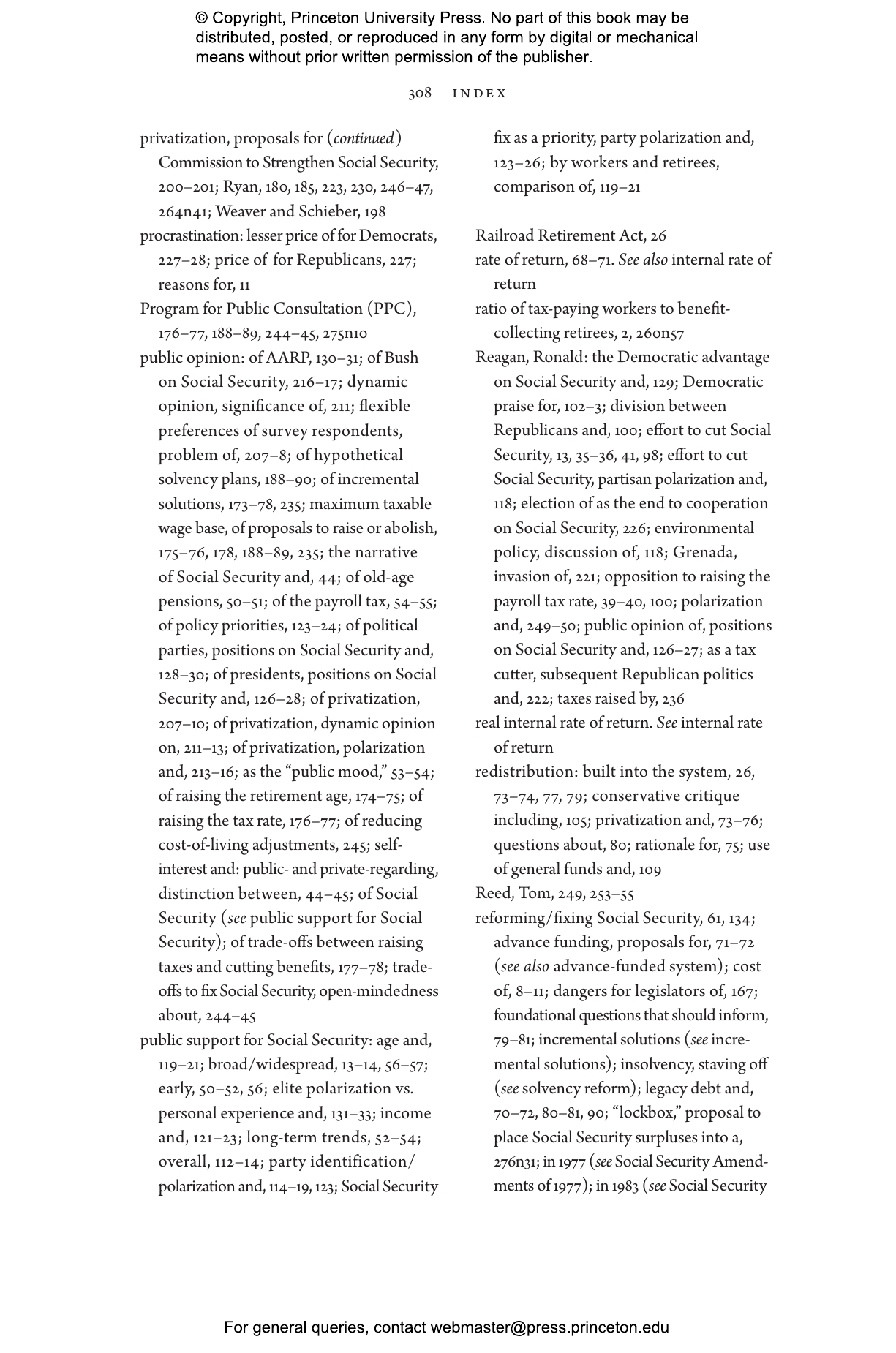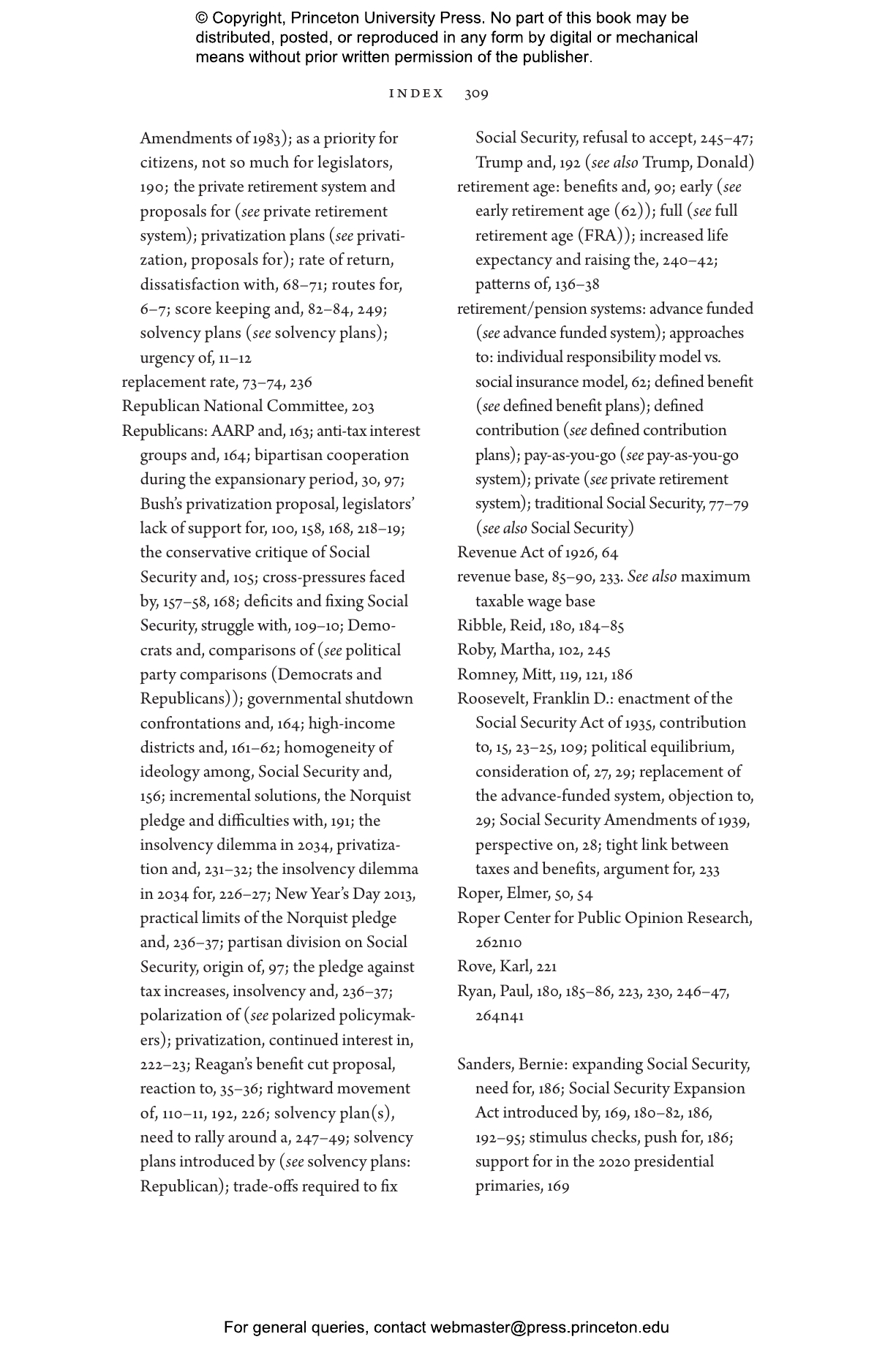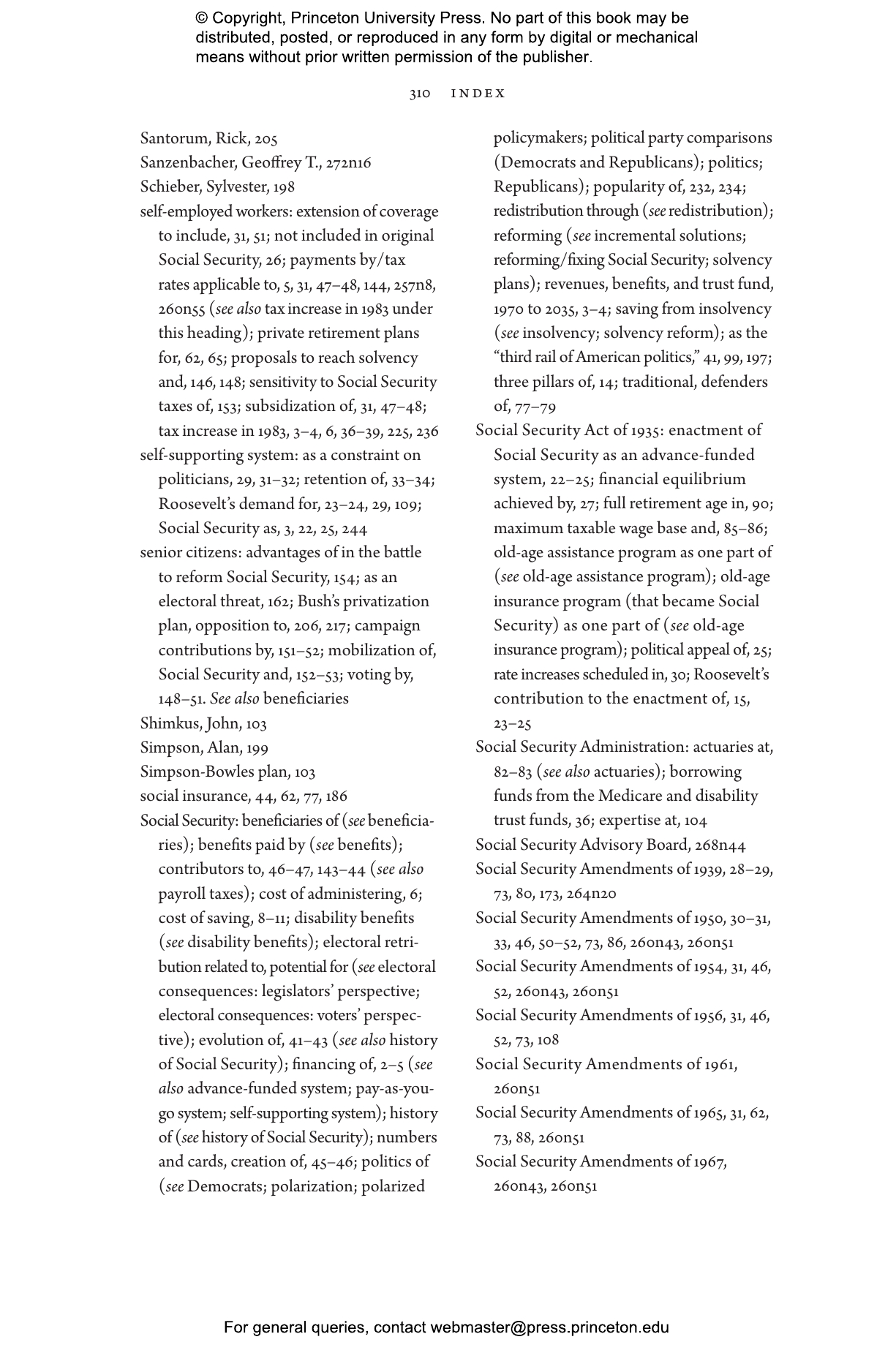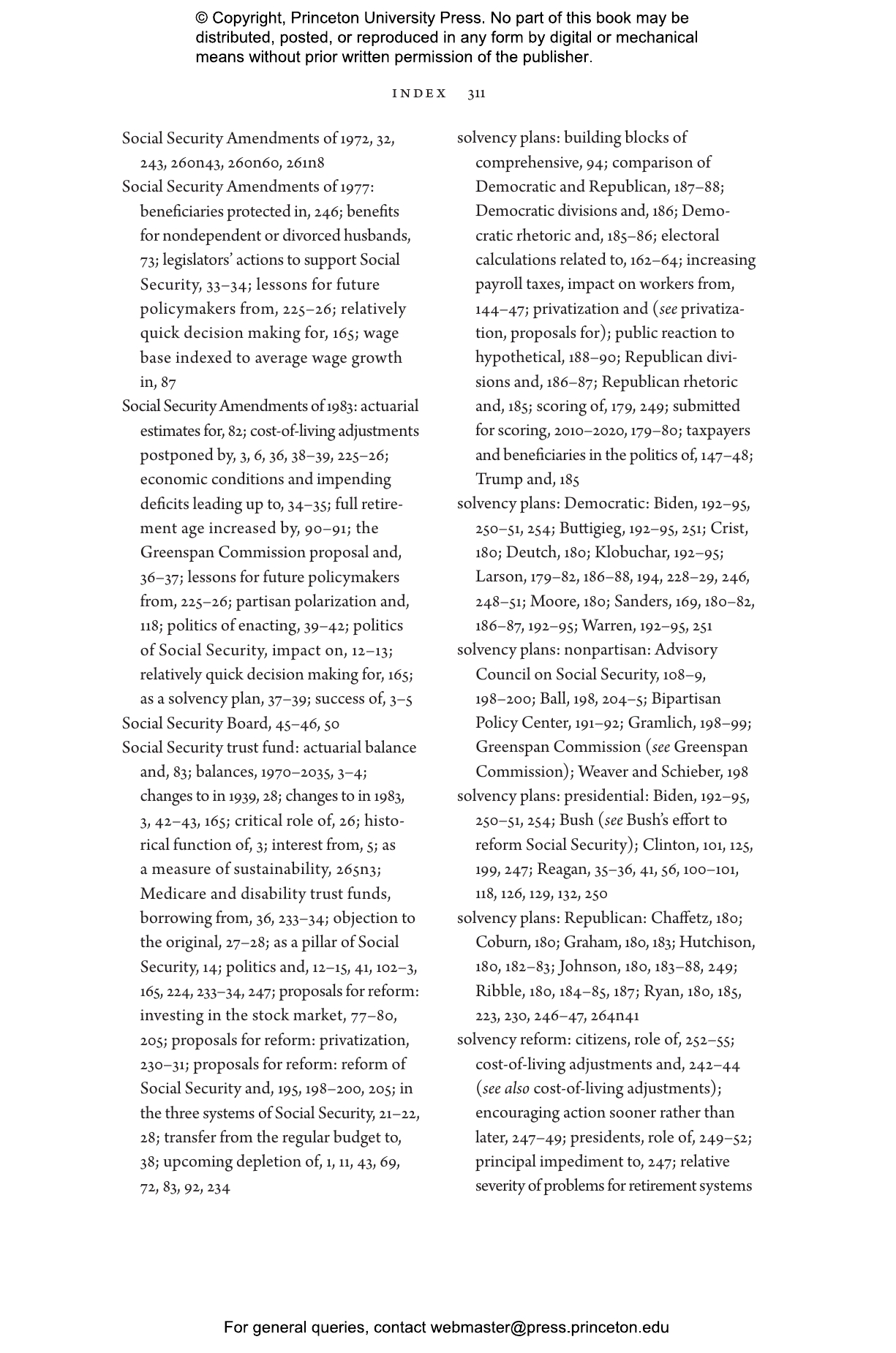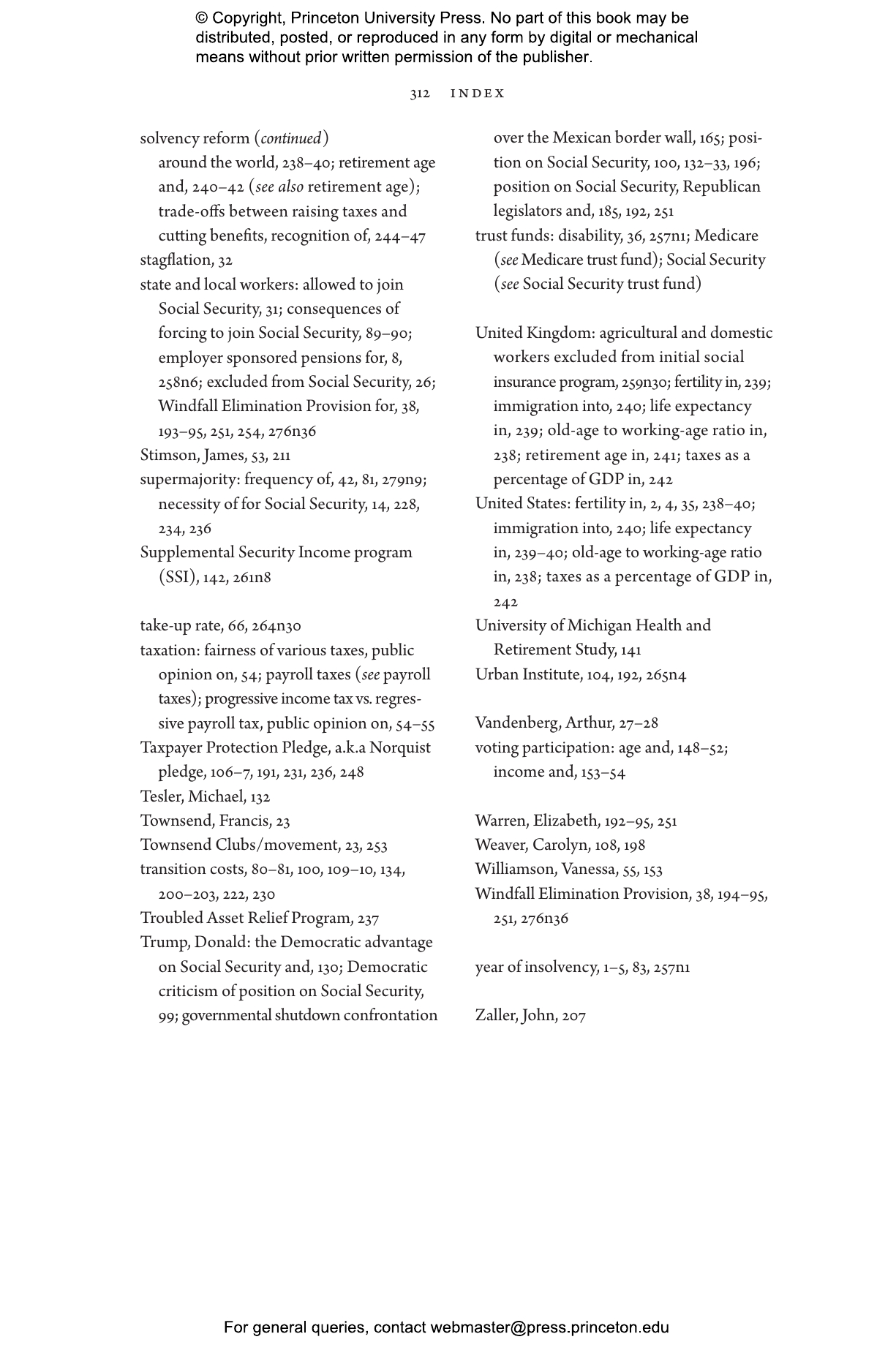Since its establishment, Social Security has become the financial linchpin of American retirement. Yet demographic trends—longer lifespans and declining birthrates—mean that this popular program now pays more in benefits than it collects in revenue. Without reforms, 83 million Americans will face an immediate benefit cut of 20 percent in 2034. How did we get here and what is the solution? In Fixing Social Security, R. Douglas Arnold explores the historical role that Social Security has played in American politics, why Congress has done nothing to fix its insolvency problem for three decades, and what legislators can do to save it.
What options do legislators have as the program nears the precipice? They can raise taxes, as they did in 1977, cut benefits, as they did in 1983, or reinvent the program, as they attempted in 2005. Unfortunately, every option would impose costs, and legislators are reluctant to act, fearing electoral retribution. Arnold investigates why politicians designed the system as they did and how between 1935 and 1983 they allocated—and reallocated—costs and benefits among workers, employers, and beneficiaries. He also examines public support for the program, and why Democratic and Republican representatives, once political allies in expanding Social Security, have become so deeply polarized about fixing it.
As Social Security edges closer to crisis, Fixing Social Security offers a comprehensive analysis of the political fault lines and a fresh look at what can be done—before it is too late.
Awards and Recognition
- Winner of the Gladys M. Kammerer Award, American Political Science Association
- Winner of the William G. Bowen Book Award, Industrial Relations Section of Princeton University
R. Douglas Arnold is the William Church Osborn Professor of Public Affairs Emeritus at Princeton University. His books include Congress, the Press, and Political Accountability (Princeton), The Logic of Congressional Action, and Framing the Social Security Debate.
"With lucid prose and compelling logic, Arnold provides a masterclass of the application of theory to practical problem-solving. Fixing Social Security exemplifies the best of what political science has to offer to policy analysis—it is the rare book that offers as much to scholars as it does to practitioners, and we recommend it to all interested in the intersection of politics and policymaking."—winning citation, Gladys M. Kammerer Award, American Political Science Association
“A tour de force of congressional, political, and policy analysis.”—Ira Katznelson, Columbia University
“Masterful and authoritative, Fixing Social Security looks at the politics of repairing a cornerstone of our nation's social insurance programs. R. Douglas Arnold combines policy expertise with an acute understanding of Congress to explain why lawmakers have yet to confront the looming insolvency of Social Security. A significant and illuminating contribution to our understanding of American policymaking and the political barriers to durable reform.”—Sarah Binder, George Washington University and the Brookings Institution
“Fixing Social Security illuminates one of America's most daunting policy challenges for the coming century: how citizens and officials can sustain a vital social policy in a society so transformed by its own flourishing as to literally outlive Social Security’s original design. Only a triplo maestro of theory, institutional empirics, and policy details—that is, R. Douglas Arnold—could have written this book.”—Daniel Carpenter, author of Democracy by Petition: Popular Politics in Transformation, 1790–1870
“R. Douglas Arnold's Fixing Social Security is a worthy successor to Martha Derthick's Policymaking for Social Security. Arnold has mastered the demography, economics, and politics of Social Security reform and distills the essence of his understanding in a highly accessible fashion. This is the perfect guide for understanding why Social Security is projected to become insolvent in 2034 and whether, when, and how it might be fixed.”—Thomas E. Mann, coauthor of One Nation After Trump: A Guide for the Perplexed, the Disillusioned, the Desperate, and the Not-Yet Deported
"Why has Congress done nothing over the last three decades to fix Social Security—a program with widespread support among both Democrats and Republicans? And what will legislators do as the trust fund runs out in the 2030s? This book tells you everything you need to know.”—Alicia H. Munnell, director of the Center for Retirement Research at Boston College
“R. Douglas Arnold offers the definitive analysis of the politics of Social Security. With the trust fund set to run out of money in 2034, Arnold explains why Congress has failed to act to shore up a widely popular program that millions depend upon, and provides important lessons about the prospects for reform going forward.”—Eric Schickler, author of Racial Realignment: The Transformation of American Liberalism, 1932–1965
